THE OWL



Lisa Rosen-Metsch ’90 Dean
Curtis Rodgers
Vice Dean
Jill Galas Hickey
Associate Dean for Development and Alumni Relations
Aviva Zablocki
Director of Alumni Relations
Editor
Deborah Kirk
Diablo Custom Publishing
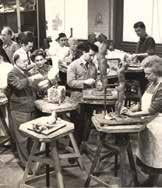
As the School of General Studies marks its 75th anniversary, distinguished historian and longtime Barnard College professor Robert A. McCaughey takes a close look at how GS has evolved to hold a unique place within the University and more broadly within American higher education.
For more than 75 years, GS has welcomed veterans, immigrants, parents, performers, entrepreneurs, and all other variations of “nontraditional” students, who bring extraordinary life experiences to the campus of Columbia University. In this special section, The Owl celebrates 75 trailblazers who studied at GS—and transformed our world.
Columbia Welcomes Nemat “Minouche” Shafik
Its 20th President
The first woman to hold the role of president since Columbia’s founding, Dr. Shafik brings with her 30 years of experience as a leading economist with a focus on public policy and academia.

Exploring Performance Through Multiple Lenses
Ariel Osterweis ’06, a boundary-breaking performance studies professor and writer, credits GS with helping develop her radical creativity.
Associate Editor
Christina Gray ’15
Associate Director of Communications
Contributors
Eileen Barroso
Nancy J. Brandwein
Eric Butterman
Ashley Cruz
Ariana Eftimiu
Bruce Gilbert
Christina Gray ’15
Kathrin Havrilla-Sanchez
Quinn Houlahan
Siena Iwasaki Milbauer
Natalie Jankowski
Noah Kutzy

Anna Maher
Fernanda Martinez
Robert A. McCaughey
Sirin Samman
Aviva Zablocki
Cover photo: Diane Bondareff Published
As we celebrate the 75 years of progress, growth, and opportunity since the formal founding of the Columbia University School of General Studies, I could think of no better encapsulation of the past year than that of the image on this issue’s cover, featuring joyous Columbia GS students celebrating their graduation from Columbia at our Commencement Ceremony in May 2022—the first to be held in person since 2019. It was so thrilling to once again participate in this amazing tradition and to gaze out over a sea of Columbia blue, punctuated by the orange of our new GS owls.
As we further reflect on how far our School has come since 1947— and earlier when including our roots at University Extension— several Presidents of Columbia University played important roles along the way, but none more than Lee C. Bollinger, whose tenure as Columbia’s 19th president will conclude in the summer of 2023. I am profoundly grateful for all that President Bollinger has done in his 21-year tenure to support our School, our students, our alumni community, and me personally. The list of President Bollinger’s accomplishments over the past two decades is unparalleled, but the lives of GS students and alumni that have been enriched thanks to his support are what I truly cherish.
And, as grateful as I am for the support of President Bollinger, I am equally as excited to welcome Nemat “Minouche” Shafik as the 20th President of Columbia University, as of July 1, 2023. Born in Alexandria, Egypt, and raised in the U.S., Dr. Shafik becomes the first woman to serve as President of this storied university. She comes to Columbia from the London School of Economics and Political Science, where she has distinguished herself as a tireless proponent of diversity and inclusion and a creative and thoughtful leader committed to cultivating—and unleashing—talent and teams in service of the public good, all ideals at the heart of the mission of our School. I’ve had the pleasure of meeting Dr. Shafik and we discussed our wonderful community. President-Designate Shafik also met several Columbia GS students when she visited Lerner Hall for a gathering of Columbia’s undergraduate community. I very much look forward to working with President Shafik and the momentum her new leadership will bring for Columbia and for the School of General Studies.

Turning back to the issue in hand, a reflection on 75 years of GS, I hope you will take pleasure and pride in reading the stories of some of our most successful alumni (see “75 for 75,” page 18). The work of narrowing this list to its final version was extremely challenging, as so many more of our amazing GS alumni have made great contributions to our society that deserve to be celebrated. I look forward to continuing to share their and your stories in future issues.
I am also honored to be able to share a brief preview from Professor Robert McCaughey of his forthcoming book on the history of the Columbia University School of General Studies (see “A Short History of Columbia’s School of General Studies,” page 10). Professor McCaughey is the foremost scholar on the history of Columbia University, and his appreciation for and celebration of GS as a vital part of that larger history truly speaks to the unquestionable growth and progress we have made as a community and a School in these 75 short years. I look forward to the release of the complete book in the coming years and, for now, express my sincere appreciation to Professor McCaughey for committing his time and energy to telling our story.
I hope you enjoy this issue of The Owl, and the people, stories, and accomplishments represented on its pages. Although our 75th anniversary by necessity requires us to look back and contemplate all that has happened to bring us to this point, I am beyond grateful to share with you, the alumni and friends of our unique college, that it is our future that has never been brighter.
In community,
Lisa Rosen-Metsch ’90 Dean
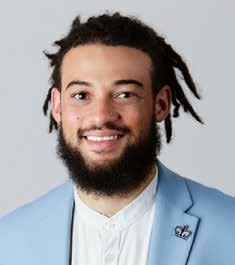
For Bérénice Sylverain, earning a prestigious 2022 Marshall Scholarship from the British government is more than recognition of outstanding academic performance; it’s an opportunity to speak for her home country of Haiti.

“This [Marshall] fellowship was not for me but my nation—to give voice and life to a frail, deoxygenated nation-state,” she said. “I was completing my application during one of the most tumultuous times in Haitian history. In the tumult, I found courage and strength to continue. I was reminded of why I needed to do this, why I needed to share with the Marshall Committee my hopes, dreams, and goals for Haiti.”
Sylverain, who was one of 41 winners from the United States and the first-ever GS Marshall scholar, enrolled at the University of Oxford in Fall 2022 to pursue degrees in Latin American studies and comparative social policy, with a focus on Haitian politics and diplomacy. She hopes to use her newfound knowledge to “establish an archive of Haitian literature, culture, and history” as a head librarian at one of America’s leading academic institutions. Sylverain offers advice to other students pursuing similar opportunities: “Know that your story matters and is important. We all create and curate a life for ourselves worth sharing with others. We experience trials, adversity, but more importantly, beauty, joy, and love. Out of these experiences, we gain strength and a profound sense of who we are.”
During the five years James Harvey Elliott II ’23 was incarcerated, he discovered a passion for prison reform. After his release, he continued to raise awareness about the effects of mass incarceration through speeches at prisons and community colleges. Elliott, who enrolled at Columbia GS in 2020, is also a recipient of the School’s prestigious PALS Scholarship, which fully covers the cost of tuition and includes a service component.
Elliott’s advocacy for prison reform helped lead to his selection as a 2022 Truman scholar by the Harry S. Truman Scholarship Foundation. This distinguished honor is awarded in recognition of students’ exemplary public service work, academic achievement, and leadership and offers recipients support for graduate or professional school in preparation for a career in public service.
Upon graduating from Columbia, Elliott plans to pursue a Juris Doctor degree and hopes to found a nonprofit that will better enable colleges and prisons to collaborate, bringing more educational opportunities to incarcerated individuals.
“I look forward to bringing about change with the valuable knowledge I have gained throughout my life and my academic journey thus far,” Elliott said. “There’s no doubt in my mind that with GS’s community and the support that has been offered to me, I will achieve whatever I set out to accomplish.”
“We all create and curate a life for ourselves worth sharing with others. We experience trials, adversity, but more importantly, beauty, joy, and love. Out of these experiences, we gain strength and a profound sense of who we are.”
Bérénice Sylverain ’21


The Honorable Carlos Del Toro discussed the importance of the Navy and Marine Corps in meeting 21st-century challenges
On December 8, the Honorable Carlos Del Toro, the 78th Secretary of the U.S. Navy, addressed students, veterans, NROTC cadets, University leadership and staff, and members of the community in Low Library. Del Toro—who started out as a self-described “child with big dreams from Thomas Edison High School in Queens”— spoke about the current state of the Navy and Marine Corps and how each is rising to meet the challenges of the 21st century, from a shifting geopolitical sphere to a rapidly changing climate. Opening remarks were made by Dean Lisa RosenMetsch ’90; Grayson Noyes ’23, President of MilVets and a Marine Corps veteran, introduced Secretary Del Toro.
Outlining priorities for the Navy and Marine Corps, Del Toro spoke of strengthening maritime dominance, building a culture of war-fighting excellence, and enhancing global strategic partnerships. He also spoke about recruiting more women and the inseparability of war-fighting excellence and quality of life for service members and their families.
“Taking care of our people. It’s what leaders do. Our Sailors and Marines are better
prepared and more focused when they know their families are doing well,” he said. This spirit was echoed earlier in the day during a roundtable discussion with GS student-veteran leaders and NROTC cadets from SUNY Maritime College in the new Center for Veteran Transition and Integration (CVTI) space in Kent Hall on Columbia’s Morningside Campus.
“The investment we make in you is essential to our national security,” Del Toro said to the students, while also citing the importance of a center like CVTI to foster camaraderie and support veterans in their transition to civilian life as well as to the job market and classroom. Del Toro’s address was followed by a discussion with Jason K. Dempsey, Executive Director of CVTI.
In closing, Del Toro remarked: “I believe it fitting that I give the last word to perhaps that most famous Columbia Lion, Theodore Roosevelt: ‘We ask for a great Navy; we ask for an armament fit for the nation’s needs, not primarily to fight, but to avert fighting.’ To avert fighting.”
“[Columbia] has had an extraordinary role in shaping our greatest naval strategists, our most articulate and influential advocates for the strongest Navy the world has ever known. Their wisdom offers us timeless principles to help guide our actions even today.”
Carlos Del Toro, Secretary of the U.S. Navy (pictured nearleft,
with GS student and active-duty Marine Isaiah Nagelkerk)
4
Angie Maldonado ’23, Lisa Cardoso ’23, and Kaya Kim ’22 (above, from left) were among a handful of undergraduates to receive the 2021-2022 Columbia University Racial Justice Mini-Grants. The mini-grants go to undergraduate and graduate studentgenerated projects aimed at addressing issues of racial justice within and outside of the Columbia community.

For their project, titled “Dismantling Racism and Decolonizing Ourselves Through Art,” Cardoso, Kim, and Maldonado created a poetry slam last April that brought together Columbia students, staff, and faculty alongside local artists for an evening of reflection on issues of racial justice. “We chose a poetry slam so that everyone’s unique experiences due to their identities, social circumstances, oppression, and/or social system would be effectively reflected and delivered to people,” Kim said.
“The goal of the Racial Justice Mini-Grant Program is to provide an opportunity for the Columbia community to grow and learn together,” Cardoso said, “and we found that poetry [was] the perfect route.”
“Poetry is the language of the soul and mind,” Maldonado added. “There is no better way to offer your opinion about issues like racial justice.”
In the past academic year, 54 GS students received prestigious fellowships, including GS’s second consecutive Harry S. Truman Scholarship and first-ever Marshall Scholarship (see page 4 to learn more). Students also received a Fulbright-Hays Scholarship, a George Lucas Scholarship to USC Film School, and an NSF Graduate Research Fellowship, in addition to many fellowships conferred by Columbia University as well as by New York State and New York City.
Nour Aljowaily ’23, Khadja Balndeh ’22, Alexandra Ling ’25, and Buyanlkham Munkhbayar ’23 were among 25 Columbia students chosen for the UN Millennium Fellowship, a semester-long leadership development program.
3 234 53 750+ 124
Last summer, Columbia World Projects announced its inaugural cohort of eight Social Impact fellows, including three GS students— Peter Brown ’23, Julian Melo ’23, and Machaela Parkin ’24.
Students were inducted into GS Honor Society on November 10, 2022
GS seniors were inducted into the New York Delta Chapter of the Phi Beta Kappa Society in May 2022
Incoming GS undergraduate and Postbac Premed Program students were welcomed to campus on August 29, 2022
February 2023
Every year, hundreds of veterans, leaders, scholars, and guests come together to celebrate Columbia University’s veteran community at the Military Ball. Established in 2010, the Military Ball is the premier event uniting veterans across the University community; proceeds help to underwrite academic and career transition programming for veterans and military family members nationwide, financial aid for veteran students at Columbia University, and veteran student and alumni programming.
The 2022 Military Ball, held November 11, honored Lee C. Bollinger, President of Columbia University and Seth Low Professor of the University (right, with Dean Lisa Rosen-Metsch ’90), as the recipient of the 2022 Peter J. Awn Lifetime Service Award for his extraordinary support for military veterans and service members.



Elizabeth Bordi ’23, Chief Inclusion Officer of the Military Veterans of Columbia University (MilVets) student organization, opened the ceremony with a moment of recognition for the prisoners of war and those missing in action who were unable to attend the event. Other highlights included an invocation from Jewelnel Davis,
University Chaplain, Associate Provost, and Director of the Kraft Fellows Program at Columbia University, and remarks from Dean Rosen-Metsch about the diverse educational paths chosen by the nearly 400 student veterans at GS.
“GS was created in large part to provide access to a world-class education to the thousands of service members returning from World War II and has forged the path for highly selective peer institutions to recognize what we have known since our founding— that military veterans bring extraordinary talent and potential to the learning community,” Dean Rosen-Metsch said. The night’s honoree, President Bollinger, was recognized for his efforts in making higher education accessible to military veterans and service members during his 21 years as president, the longest tenure of any president in the Ivy League. Accepting the award, he spoke about facilitating the return of the Naval ROTC to Columbia as well as the importance of the student veteran community on campus. He concluded by thanking that community for their dedication to embodying the values of Columbia.
“Columbia is incredibly proud to have 600 military veterans across the schools of our institutions,” he said. “We love having people with vastly different experiences populate our classrooms, help us with our research—and help us serve the world.”
The University’s annual Military Ball honored veterans, service members, and their longtime supporter President Lee C. Bollinger
Five GS students (top row) and five Barnard students (bottom row) have been selected to join the inaugural cohort of the Intrapreneurial Leadership Fellows Program. The 2022-2023 GS fellows are Leslie Blanco ’24, Elizabeth Bordi ’23, Daniella Coen ’24, Ebonnie Goodfield ’24, and Frankii James ’26.

“I am thrilled to strengthen Barnard’s connection to Columbia’s School of General Studies with this innovative and exciting new program,” said Barnard President Sian Leah Beilock. “Barnard students and Columbia’s women veterans and service members have so much to learn from one another—and to teach one another.”
Intrapreneurs change systems from within, innovating inside organizations. Fellows learn how experienced intrapreneurs have approached this challenge in their organizations and learn from each other in this new community of practice, gathering over the 2022-2023 academic year to connect and develop the skills, confidence, and relationships needed to lead change in their post-undergraduate lives.
“The Intrapreneurial Leadership Fellows Program provides an amazing opportunity
Joey Hou ’22, who majored in computational finance in Columbia’s Joint Bachelor’s Degree Program with City University of Hong Kong (CityU), has created an invaluable online resource for students interested in the nontraditional program.

Aiming to clarify the application process and provide insights from a student perspective, the online resource includes video tours of campus, question-andanswer sessions with students, and a detailed application handbook. Available in three languages, the website—which began as a booklet first published by Hou and fellow students in 2020—is a helpful resource for students interested in learning more about the life of a ColumbiaCityU student.
“When we were preparing for the Program, there were no previous guides from a student’s perspective for us to reference,”
for this inaugural cohort to learn from leaders in their respective fields, as well as from one another, developing skills that will help them drive societal change,” said Dean Rosen-Metsch ’90. “I look forward to following their journeys and am overjoyed to collaborate with Barnard College’s Athena Center for Leadership, as well as the inspiring women student veteran leaders in the Columbia MilVets student organization, on this incredible initiative.”
Hou explained. “The website creation came way after the original publication of the booklet. So … instead of having multiple resources across multiple platforms— especially since I had the booklet and two Q&A videos prepared—I thought that it would be good if there was one accessible platform. I wanted to make it approachable and informative for students so that they knew exactly where to find the resources they wanted.”
“I admire GS enormously. Its genius is recognizing that academic talent blossoms and flourishes for individuals at different times. You therefore know better than anyone that learning is an ever-ongoing process.”
Lee C. Bollingerto
the Fall 2022 incoming GS students in his final Convocation address as president of Columbia University
Taylor Richardson strolls into Joe Coffee, waving enthusiastically. She talks with her hands and laughs loudly, exuding the confidence of someone made for the stage. As she juggles her career as an actress in HBO’s The Gilded Age with her film and media studies, Richardson sees the School of General Studies as a good fit because it gives students with nontraditional backgrounds an opportunity to plan their schedules around their multifaceted lives.
Richardson has lived in the New York area since she was 10 years old, when she performed in the 2012 Broadway revival of Annie. She has participated in local theater and dance groups since the age of three and stumbled upon the Annie audition out of happenstance.
“Someone randomly told me, ‘This is happening, you should go audition for it,’” she said. “I ended up being cast, and it changed the trajectory of my life.”
That experience solidified her desire to pursue acting as a career. Now, she considers New York home and has worked professionally since Annie for about a decade.
In her latest project, Richardson acted in season one of The Gilded Age alongside industry luminaries. The award-winning show was written by Julian Fellowes, the mind behind Downton Abbey, and has been renewed for a second season, in which Richardson is slated to appear as a series regular.
In the series, Richardson plays Bridget, a young Irish immigrant who works for the Van Rhijn family in 1880s New York City. Richardson’s role was tailored to

her: Although the character she originally auditioned for was Swedish, the producers made the character Irish because Richardson could do only that accent.
Her time on the set of The Gilded Age has allowed her to explore different aspects of the film industry. “I like being able to step back and pull together all of the various parts that convey a story, an experience, or a feeling,” said Richardson. “As much as people will let me act, or trust me to direct at some point ... I would do that for as long as humanly possible.”
The corners of Richardson’s eyes rise when she shares her passion for acting and her enthusiasm for Columbia. Above all, gratitude and a love for both the stage and New York City endure. “It’s been nice to feel like I am a student and a human and an actor and all of those things at once,” she said.
This piece is adapted from an article that originally appeared in the Columbia Spectator.

More so than the other 18 schools that make up the 267-year-old Columbia University, including its newest, the Columbia Climate School, the 75-year-old School of General Studies is mostly a history of student striving and accomplishment by alumni. To be sure, the school’s administrative history matters, as has the scholarly productivity of the men and women who have constituted its faculty, but neither its estimable deans nor its talented professors account for the unique place GS holds within the University and more broadly within American higher education. The Columbia historian Richard Hofstadter concluded his history of the American antebellum college quoting a president of Williams College in 1873: “Professors are sometimes spoken of as working for the college. They are the college.” Students are sometimes spoken of as attending the School of General Studies. They are the school.
For this reason, when Dean Lisa RosenMetsch first raised a year or so ago the prospect of my writing a history of the School of General Studies, I welcomed the opportunity. Having already written Stand, Columbia: A History of Columbia University in the City of New York (2003); A Lever Long Enough: A History of Columbia’s School of Engineering and Applied Science (2014); and A College of Her Own: The History of Barnard College (2020), I looked forward to another bite at the apple, not least because of my five-decade-long fascination as a faculty member and dean at Barnard College with GS, its history, its leaders, and its students. This newest undertaking, however, hit the two in-residence members of the McCaughey household differently. My wife, having tolerated three decades of dinnertime conversation about arcane aspects of Columbiana, shuddered at what might follow next. Untold tales of the Mailman School of Public Health? The definitive history of the second-floor broom closet of the Columbia Law School? Thus arises the need to assure
her—and the readers of The Owl—that I see the intellectual challenge here less seeking a proper balance between criticism and commendation of an institution’s past than containing my unabashed excitement about the School of General Studies’ present condition and future prospects.
The forerunner of the School of General Studies, University Extension joined the proliferating list of Columbia’s schools and programs in 1904. The brainchild of Nicholas Murray Butler, it encapsulated the new president’s “bigger is better” outlook. He regularly described the activities University Extension oversaw—summer session, Home Study, the Institute of Arts and Sciences offering lectures to the general public, a writing program, courses in business—as the University’s “obligation to the community,” but what really endeared these ventures to him were their enrollments. World War I provided still more opportunities for UE to increase its numbers, including courses in “English for Foreigners.” But with the Armistice came misgivings about “bigger is better.” Skeptics included successive deans of Columbia College: Frederick Keppel (1912-1918) and Herbert Hawkes (1918-1943), who opposed enlarging Columbia College if it meant relying
upon the mostly Jewish graduates of the city’s public high schools. Hawkes persuaded the Columbia trustees in 1921 to set a cap of 550 for entering classes to the College, allowing admissions officials over the next two decades to reject hundreds of otherwise qualified applicants.
Even as Extension enrollments grew in the 1920s (peaking at 19,000 in 1926), Butler had his own second thoughts about a major research university so heavily invested in adult education. These concerns heightened in 1930 when UE’s Home Study offerings in household economics drew the satirical attention of the prominent university consultant Abraham Flexner. Rather than respond personally, Butler left his longtime UE Director James Egbert to do so. In 1942, after a decade of declining extension enrollments, Egbert retired as director. His successor, Harry Morgan Ayres, an English professor approaching retirement, understood his role to effect University Extension’s liquidation.
The pressing question for Columbia as World War II ended was how to accommodate its share of the anticipated two million returning veterans seeking further formal education with the least disruptive impact on Columbia College. Patriotism and generous GI Bill funding mandated the first concern, while the second produced the reprieve of a renamed University Extension. In December 1946 the Columbia trustees created the School of General Studies, to open the following July. Its mission: to provide the educational opportunities sought by federally funded veterans who would enroll at Columbia between 1946 and 1949 (some 10,000 in all), while allowing its 2,000-student maleonly Columbia College, except for dropping its discriminatory policies, to carry on status quo ante bellum.
This hastily implemented plan had General Studies and the College operating as separate entities with minimal contact
Historian Robert A. McCaughey, a longtime Barnard College professor and distinguished scholar of American intellectual life, shares his deep knowledge of—and great passion for— the School of General Studies.
between their students, who already differed in admission age (16 for the College, 21 for GS), gender exclusivity (GS was open to women), and breadth of life experiences, but were further segregated by the timing of classes, separate teaching staffs, different major requirements, and access to the extracurriculum. The College insisted upon two other distinctions: that its celebrated core curriculum be off limits to GS students and that graduates of the College receive the BA degree, with GS graduates limited to the down-market BS.
The appointment in 1951 of the economist Louis Hacker as the first dean of the School of General Studies and the retirement of the accommodating Harry Carman as dean of Columbia College (1943-1950) brought an end to the short honeymoon between the College and GS. Hacker moved aggressively to sustain General Studies in anticipation of a declining veteran population. Among his lasting initiatives was creating a novel dualdegree program in 1954 with the Jewish Theological Seminary and a year later the nation’s first postbaccalaureate premedical program. Hacker joined GS students in calling upon the College for greater access to the extra-curriculum and upon the trustees for its graduates to receive the BA degree. Such moves were seen by successive deans of Columbia College and Columbia Spectator as GS “expanding into educational realms not properly within its scope.” Meanwhile, GS’s growth—in 1954, at 9,000 enrollments, the largest of the university’s 15 schools—prompted Spectator editors to ask rhetorically: “Is General Studies offering an easy way to a Columbia degree?” (Some canards never die!)
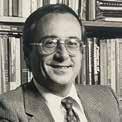




In 1955 Provost Jacques Barzun ’32CC persuaded President Grayson Kirk to convene a Commission on the Future of the University. The ensuing “Macmahon Report (1957),”
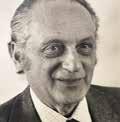
self-congratulatory as regarded Columbia’s overall standing, saved its criticisms for the School of General Studies, all but calling for its closure. Despite assurances from Kirk that the report’s punitive recommendations as to GS would not be implemented, Hacker resigned as dean and left Columbia. What followed was a decade when GS’s second and third deans, Clifford Lord (1958-1964) and Clarence Walton (1964-1969), carefully avoided the boundary disputes of their combative predecessor, while neither secured a recognized place for their school and its nontraditional students in an increasingly beset Columbia University.
Clarence Walton’s last substantive action as GS’s third dean, in the company of GS students protective of their school, was in the tumultuous spring of 1968 keeping College protesters from occupying Lewisohn Hall, the new home of GS. Shortly thereafter, William McGill became Columbia’s 15th president and put the University through a painful but lifesaving decade of austerity. Complaints continued from successive deans of Columbia College that GS deprived the College of needed resources, to which successive GS deans argued that its operating surpluses helped keep the University afloat. Only under the leadership of McGill’s successor, Michael I. Sovern, would Columbia’s finances be stabilized, but with the fate of GS still uncertain. Meanwhile, Deans Aaron Warner (1969-1977) and Ward Dennis (1977-1992) proceeded cautiously and avoided the direct fire of College loyalists, who beginning in the early 1970s focused more on making the College coeducational, an undertaking that put them less at cross purposes with GS than with the affiliated and women-only Barnard College.
In December 1946 the Columbia trustees created the School of General Studies, to open the following July. Its mission: to provide the educational opportunities sought by federally funded veterans who would enroll at Columbia between 1946 and 1949 (some 10,000 in all).
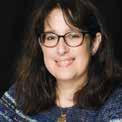

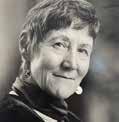

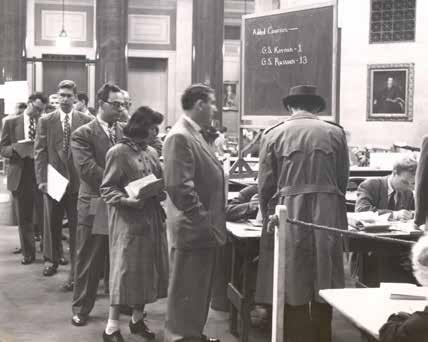

The political machinations of the 1970s and ’80s should not obscure two concurrent developments that enhanced GS’s survival prospects. The first was the growth of a substantial and loyal body of GS alumni, proud of their Columbia degrees and of their GS experience. By 1990 they numbered 10,000 and included men and women of financial means and personal character to make their loyalties known to the University’s administrative leadership and trustees. A second contingent of GS advocates consisted of Columbia (and Barnard) faculty, some acting from a principled belief in the necessity of a university serving more than the traditional age-bounded and educationally privileged segment and extending those opportunities to a much larger constituency of adults in search of educational enrichment and commensurate credentialing. Other faculty came by their proGS persuasion from their experiences in the classroom, where they found GS students provided a value-added component to the discussions. These faculty included several women whose departments in the 1960s and 1970s limited their teaching to GS. In Columbia’s 18th president, George E. Rupp (1993-2002), who saw the strengthening of the undergraduate experience at Columbia as his primary goal, GS alumni and pro-GS faculty found a kindred spirit.

Rupp started his presidency in the spring of 1993 with a major organizational reordering of the way Columbia administered undergraduate education. He fired both the dean of the Graduate School of Arts and Sciences and the dean of Columbia College and filled the position of dean of General Studies, which had been vacant since the death of Ward Dennis a year earlier. He then merged the jobs of vice president for arts and sciences and dean of the College, to which Steven Marcus was appointed, and named Caroline Bynum dean of General Studies and the newly created vice president for undergraduate education.
Neither Marcus nor Bynum remained in these positions for long—Marcus for two years and Bynum for one—and the attempted shakeup was deemed at the time a failure. In retrospect, the appointment of Bynum, a distinguished medieval historian and scholar of religion, was a new beginning for the School of General Studies, one marked by presidential approbation that has since persisted.
Bynum’s year as dean prepared the way for more clearly separating the undergraduate component of General Studies from its other educational functions. The actual reorganization occurred in July 1994 during the succeeding deanship of Gillian Lindt, with the School of General Studies retaining responsibility for the undergraduate program and the postbaccalaureate premedical program, while assigning special programs, summer session, and nondegree offerings to the School of Continuing Education, with Frank Wolf as dean. A Rupp-commissioned Task Force on Strategic Planning in 1994 presented an upbeat assessment of the future prospects of GS, the animosity of the Macmahon Report a quarter-century back now all but forgotten.
Lindt’s deanship (1994-1997) was also brief but again had administrative responsibility for the School in the confident hands of a distinguished scholar who had the respect of the University’s other deans and the president’s personal backing. By the end of Lindt’s three-year term, the School of General Studies had come to be widely (if not yet universally) accepted alongside the College and SEAS as one of Columbia’s three coequal undergraduate programs, with Barnard College an affiliated and contributing fourth.
Yet it was Rupp’s appointment in 1997 of Peter Awn, an ex-Jesuit priest and specialist in Islam, that provided the sustained and charismatic administrative leadership needed to propel the School of General Studies to be one of the signal success stories of 21stcentury Columbia.


A
Awn played the long game. This meant bringing the educational opportunities of GS students into closer alignment with those of the College (and Barnard), including access to heretofore off-limits core courses, even as he celebrated the social and experiential heterogeneity of GS’s nontraditional students. This required stabilizing the School’s mercurial financial fortunes, improving the persistence of students through to graduation, and keeping pace with the annual tuition increases in the College. This last he called the price to be paid for an education that matched that of the College, while urging the central administration and GS alumni to provide additional financial aid support.
Awn played the long game. This meant bringing the educational opportunities of GS students into closer alignment with those of the College (and Barnard), including access to heretofore off-limits core courses, even as he celebrated the social and experiential heterogeneity of GS’s nontraditional students.Above: A sculpture class on campus. Right: Members of the School’s Afro American Society in the late 1950s or early 1960s.
Success in securing GS students greater access to extracurricular activities resulted in their serving on the editorial board of the Columbia Spectator, representing GS on the undergraduate Committee on Instruction, and assuming leadership roles in campuswide organizations. GS students also became prominently involved in early organizational efforts by the University’s LGBTQ+ students and their supporters.
In 2005 Awn and his team produced “Past History, Current Reality & Plan for the Next Decade (2005-2015)” for President Lee Bollinger’s consideration. It called for the steady expansion of GS enrollments from 1,700 full-time equivalent students in 2005 to 2,700 in 2015, along with a greatly increased recruitment effort directed at military veterans and graduates of the nation’s leading community colleges. It also involved expanding GS’s pioneering dual-degree undergraduate programs with universities abroad. After reviewing the plan, Bollinger authorized its quiet implementation. The outreach to veterans marked a departure from the anti-war protests of the 1960s and Columbia’s abrupt decision in 1968 to terminate its 22-year NROTC program. It also clashed with contemporary campus sentiment when in 2005 the University Senate overwhelmingly rejected a resolution calling for the restoration of ROTC. In accepting the vote, Bollinger allowed that Columbia might be open to a return of ROTC if and when Congress jettisoned the Clinton-era “Don’t Ask, Don’t Tell” policy that prohibited gays from openly serving in the military. In 2008, at the urging of GS veterans, Columbia’s trustees approved the University’s participation in the Yellow Ribbon Program, in which post-9/11

veterans attending universities where the tuition exceeded the amount for which these veterans were eligible had half the difference covered by the admitting university. Upon the rejection of DADT by Congress in 2011, Bollinger quickly secured an agreement with the Department of the Navy to provide Columbia students access to ROTC.

By then Bollinger and his inherited GS dean had become fast friends, a relationship the president acknowledged in 2017 accepting Awn’s decision to step down and more movingly at Awn’s memorial service in February 2019, after Awn had been fatally injured by an automobile while crossing 116th Street.
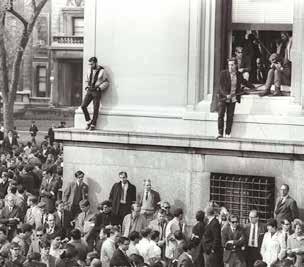
This heartbreak is especially palpable for the General Studies community where, during his 20-year tenure, Awn came to personify the School’s character, values, and mission. For him, that meant a student body composed heavily of student veterans, first-generation students, and international students, whose age and life would further diversify and enrich our undergraduate classrooms.
In calling Awn “without question, one of the essential leaders of Columbia University’s modern era,” Bollinger cited as evidence his embracing the school’s long-held relationship with the Jewish Theological Seminary. A year earlier he had selected as GS’s current dean Lisa Rosen-Metsch ’90, a graduate of the Joint Degree Program between GS and List College of the Jewish Theological Seminary. The daughter of Brooklyn public school teachers and an expert in the treatment and prevention of HIV/AIDS among populations with substance-abuse disorders, RosenMetsch joined the Mailman School of Public Health in 2012. Hers is the formidable task of sustaining the momentum achieved by her predecessors, no longer finding a secure place in the University for GS but making manifest to the entire Columbia community what Bollinger has recently called “the genius of General Studies.” Abetted by an energized alumni body, a supportive faculty, and a diverse and multitalented student body, and on the occasion of the School’s 75th anniversary, she and her colleagues have every prospect of succeeding.

The outreach to veterans marked a departure from the anti-war protests of the 1960s and Columbia’s abrupt decision in 1968 to terminate its 22-year NROTC program.Left, top to bottom: Lewisohn Hall, current home of the School of General Studies administrative offices; University Hall Annex, temporarily established to accommodate WWII veterans; the student protests of 1968; GS graduation in 1992.
After an extensive search, Columbia is proud to welcome Nemat “Minouche” Shafik as the University’s 20th president. As the first woman to hold the role of president since Columbia’s founding, she brings with her 30 years of experience as a leading economist with a focus on public policy and academia.

“I’m honored to be the next president of Columbia University,” Shafik said. “For over 250 years, Columbia has flourished as a vibrant intellectual center in the heart of one of the world’s greatest cities. But what excites me is what comes next; what can we do as one Columbia community to shape the future of this extraordinary institution?”
Shafik will begin her term on July 1, taking up the mantle after President Lee C. Bollinger steps down from his exceptional 21year tenure at the end of the current academic year.
“I feel like, if I had looked all over the world for the best person to next lead Columbia, I would have chosen Minouche Shafik,” Bollinger said. “Her expertise, her experiences—both personal and professional—and her general outlook on academic and public life make her an inspired appointment.”
Born in Alexandria, Egypt, Shafik and her family fled the country during the political and economic upheaval of the mid-1960s. Her father, who had earned his PhD in chemistry in the United States, found work in Georgia as a professor and environmental scientist; her mother become a teacher and the head of a school.
“Education was a huge part of my family’s story,” Shafik said. “Because of [that background] and what I’ve learned in my work on economic policy, I believe there is no more powerful way to make the world a better place than through education.”
Shafik received her PhD in economics from St. Antony’s College, Oxford University. She has held academic appointments at the Wharton Business School of the University of Pennsylvania and at Georgetown University, as well as positions in the UK’s Department for International Development, the International Monetary Fund, and the Bank of England. Most recently, Shafik served as the president of the London School of Economics and Political Science; she is also an avid author, editor, and scholar.
“While her accomplishments are impressive,” said Jonathan Lavine, Chair of the Presidential Search Committee, “what set Minouche apart as a candidate was her unshakable confidence in the vital role institutions of higher education can and must play in solving the world’s most complex problems. … She believes that in order to bring about meaningful change, we have a collective obligation to combine our distinctive intellectual capacities with groups and organizations beyond the academy.”
For the first time in Columbia’s history, the University will be led by a woman
For more than 75 years, the Columbia University School of General Studies (and its forerunner, University Extension) has been a beacon of educational diversity, equity, and access—one that could have only existed in a city with the ethnic, cultural, and economic diversity that is New York City. Over the years, the School has welcomed veterans, immigrants, parents, performers, entrepreneurs, and all other variation of “nontraditional” student to the campus of Columbia University. In this time, GS has offered an educational home for these diverse students, many of whom brought—and continue to bring—extraordinary life experiences, talents, and passions to the GS community and the Columbia classroom. So it should come as no surprise that the School has seen countless pioneers, visionaries, and game changers among its generations of students.
Take Amelia Earhart, a student here in 1920, who became a pioneering aviatrix. Or consider actor and trailblazing civil rights activist Ossie Davis, who was among the first to enroll at the newlyformed School of General Studies. Then there’s J.D. Salinger, who published what some call the Great American Novel in 1951, 12 years after his studies at GS. Famed chef Jacques Pépin ’70 and acclaimed actor Rachel Ticotin ’19 also studied here, as did many others who have made their marks in fields as diverse as sports, tech, politics, science, business, the arts, and more. In these pages, we’ve chosen to spotlight 75 remarkable individuals (and groups) who reflect the transformative power of the GS experience.
As we look forward to what the following 75 years will bring, let us take a moment to celebrate some of the inspiring individuals who have already passed through our doors, and the history and impact they have made and continue to make on our School and the world.





The first lyricist to win the Pulitzer Prize, bestowed for “Of Thee I Sing,” he teamed with famed brother George to be leaders in the soundtrack of the twentieth century with classics such as “Someone to Watch Over Me” and “They Can’t Take That Away From Me.”

One of the most wellknown producers of all time, with a career that spanned from the pre-talkie era all the way to the 1950s, he won back-to-back Best Picture Oscars and worked with everyone from Alfred Hitchcock to Gregory Peck.
Spanish poet, playwright, and theater director. From the play Blood Wedding to the poem “Ballad of the Moon,” his work lives on more than 80 years after his untimely passing at the hands of nationalist forces in Granada at the beginning of the Spanish Civil War.
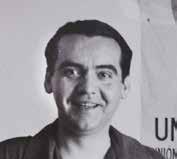

Possibly redefined the Great American Novel with Catcher in the Rye; his Nine Stories is also a watershed in the short story arena.
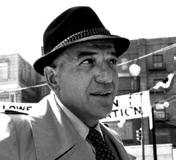
A New York native, this U.S. military veteran and recipient of the Purple Heart was also an Emmy Award-winning and Oscar- and Golden Globe-nominated actor and singer whose performance career spanned four decades.
Ossie Davis

A groundbreaking artist who persevered in the face of racism, Davis was the lead in such memorable plays as I’m Not Rappaport and wore many hats in his illustrious career, including playwright and director. With his talented wife, Ruby Dee, he was given the Kennedy Center Honor in 2004. An Emmy nominee and member of both the NAACP Image Awards Hall of Fame and American Theater Hall of Fame, he even performed with Dee at Columbia’s Miller Theatre. (Photo: Brad Barket, Getty Images)
1947-1948
Gene Roddenberry
Screenwriter, producer, and creator of the original Star Trek TV series and its first spinoff, Star Trek: The Next Generation

Pulitzer Prize-winning poet of 1964’s At the Open Road and a National Book Award finalist for the same book, Jamaica-born Simpson would continue to create poetry of note throughout his life.
(Photo: University Archives)
An artist considered by many to be a vital leader in the Minimalism movement, though he disavowed the term. Known for his watershed essay “Specific Objects,” Judd is celebrated for his works in steel and other material, his art finding its way into museum collections ranging from the Whitney Museum of American Art to the Art Institute of Chicago. (Photo: Leo Holub @ Judd Foundation)
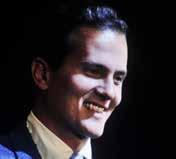
Actor and singer who sold more than 45 million records and was one of Billboard’s highest-charting artists of the late 1950s.
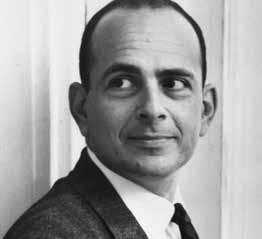
Gonzo journalist extraordinaire, his Fear and Loathing in Las Vegas offered a singular glimpse of the 1960s.
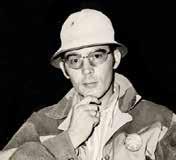
A fashion designer and an anthropologist, McFadden was famous for fusing the two. According to the Metropolitan Museum of Art’s website, maybe her most memorable design—made with the famed “marii” fabric she created in 1977—incorporated three continents with charmeuse fabric from Australia that was hand-dyed in Japan and machine-pressed in the United States. (Photo: Slim Aarons, Getty Images)

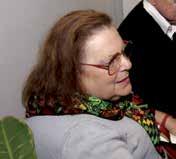
Author and journalist who was awarded the Francisco Cerecedo Prize by the Association of European Journalists in Spain, the country’s most prestigious journalism award, she was also publisher and editor of literary journal The Reading Room Her memoir, Arriving Where We Started, discusses being a part of the anti-Franco movement, including rescuing resistance members from a Spanish labor camp. (Photo: Courtesy Sarah Lawrence College Archives)
A New York Times associate editor and author who spent 40 years with the paper, he served as bureau chief in Lagos, Saigon, Moscow, Nairobi, and more. The Times remarked in his obituary that he led its coverage of the Vietnam War for two and a half years in the 1960s and the Persian Gulf War a generation later, chronicling the Iranian revolution in between.

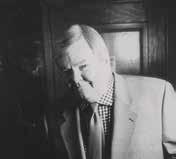
Louise Glück
Not long ago named the winner of arguably the top recognition for the pen, Glück is the recipient of the 2020 Nobel Prize in Literature and the author of 13 books of poetry overall. Glück also won the National Book Award for Faithful and Virtuous Night in 2014 and was the U.S. Poet Laureate from 2003 to 2004.

Jacques Pépin

A popular cooking television host and author of Fast Food My Way, he was also a columnist for the New York Times and co-founded the Jacques Pépin Foundation, which provides free culinary and life skills training. Once personal chef to Charles de Gaulle and staffer at the International Culinary Institute, he is the winner of multiple James Beard Foundation Awards. Pépin was the 2010 GS Class Day Keynote Speaker and a 2017 recipient of Columbia University’s honorary Doctor of Humane Letters degree.
1975
Christopher Gray
Architecture writer and researcher/ historian, his “Streetscapes” column in the New York Times celebrated buildings many may have overlooked.
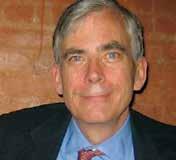
Howard Chua-Eoan

Once the news director for Time magazine, and a 2009 Carnegie Corporation of New York Great Immigrants award recipient, he won the National Council on Crime and Delinquency PASS Award for his cover story “The Gun in America.” (Photo: James Keyser, Getty Images)
Julia Bacha
An award-winning documentary filmmaker and recipient of the 2017 Columbia University Medal for Excellence, Bacha utilizes documentary film to spark important conversations. Her work has been seen everywhere from Sundance to the Tribeca Film Festival and more.


Longing to be a ballerina since she was a toddler, Graf Mack would go on to be a principal dancer early in her career at the Dance Theatre of Harlem and Alvin Ailey American Dance Theater, now calling Juilliard her home. As director of its dance division since 2018, and now dean, she inherently knows the hunger to succeed that young dancers face and is out to give them the support they deserve.
Her motto may just be: produce long and prosper. From Star Trek to Star Wars, Rejwan’s über producing talents have found her in both memorable sci-fi worlds. Rejwan was recently credited as executive producer on the hit spin-offs Andor and Obi-Wan Kenobi

Novak has always filled dance shoes with the best of them. But then he was asked to take a step further in 2018, hand-picked by Paul Taylor to replace him as director of his famed Paul Taylor Dance Company, which had been founded six decades before. Novak, who was chosen as a dancer for the company in 2010, was the 2020 GS Class Day Keynote Speaker, and was recently named to the GS Board of Visitors, oversees thrilling performances around the world—but never forgets the vision of his mentor: to make dance come alive and bring people together.
Founder of the Model Alliance, an organization that champions protections for fashion workers, Ziff created the RESPECT Program, committing major brands to set a new industry standard that prevents discrimination and harassment in the workplace. Ziff is the codirector of award-winning documentary Picture Me, and was also the 2019 GS Class Day Keynote Speaker. (Photo: Bruce Gilbert)
This celebrated Indian actress starred in more than 40 movies, taking on her first film in her mid-teens. She later decided finance was her future, becoming a top student at GS and landing a position as a summer analyst at Barclays. Starting at J.P. Morgan in 2013 after graduating, she would later go on to be an assistant vice president for Credit Suisse and currently serves as senior vice president at Citi. “My acting career helps me today because it taught me to get along with people, and GS gave me four precious years and so much more,” she said. “The professors taught me discipline and also to not be afraid of failure.”



Veteran and award-winning filmmaker and 2021 GS Class Day Keynote Speaker, Bratton pulled from his real-life experience to write and direct The Inspection about a gay man’s experience in the Marines. The film won multiple awards and landed him an exclusive invite to Variety’s annual Creative Impact Awards Brunch, known for highlighting up-and-coming directors who have gone on to win the industry’s most prestigious awards. (Photo: Michael Rowe for IMDb)
Maybe best known for her roles as Melina in sci-fi classic Total Recall and Law and Order: LA in the role of Lieutenant Arleen Gonzales, Ticotin is also a member of the GS Board of Visitors and one of the founding members of New York City’s Ballet Hispánico dance company.
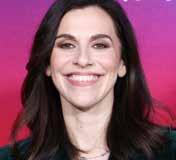

This acclaimed computer scientist and recipient of the President’s National Medal of Science in 1975 directed the IBM team that invented FORTRAN, the first widely used programming language. He would also win the A.M. Turing Award in 1977 and the Charles Stark Draper Prize in 1993—perhaps the most highly-respected award in the field of engineering.

With his wife Eileen, he started what is arguably the standard of modeling agencies, the Ford Modeling Agency, helping revolutionize the industry by turning modeling into a nine-tofive career and paving the way for the profession to give models the opportunity to become moguls—creating the first contracts for them to represent specific brands exclusively and allowing them to be better compensated for their work. (Photo:
Chair Emeritus of the GS Board of Visitors, Lawrence received the Columbia Alumni Medal in 2010, and for more than a decade has also been a director of the Columbia Investment Management Company, which manages the University’s endowment fund. Most recently, he has led the way in GS’s participation in the Student Support Initiative—the University’s first fundraising initiative completely focused on improving financial aid for all students—by pledging to match gifts made to GS that will even better support the needs of our nontraditional students.

A member of the University’s Board of Trustees and the GS Board of Visitors, Hanazawa is co-founder/ CEO of Yabbey and founded Fashion Girls for Humanity (FGFH) following the 2011 earthquake and tsunami in Japan. With the help of others, FGFH raised some $1 million to provide aid from the destruction of Hurricane Sandy and Typhoon Haiyan, among other efforts.

A 2009 graduate of the Columbia Business School, this innovative entrepreneur founded one of the first entirely women-run special-purpose acquisition companies (SPACs). “The purpose is to give these women—who are all founders, chairmen, former CEOs, and current CEOs—the capital markets experience that they need to play a more important role in the financial industry, including launching their own SPACs,” said Freidheim in a Forbes article.

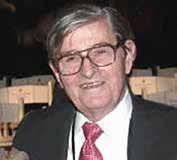
A computational neuroscientist who is CEO and co-founder of CTRL-Labs, he is credited with developing Microsoft’s Internet Explorer. Reardon is also a member of the GS Board of Visitors and was the 2012 GS Class Day Keynote Speaker.


Andrew
Satz is co-founder of EVQLV, which focuses on data science to identify antibodies with a better chance of gaining FDA approval. After graduating from GS, Satz went on to receive a master’s degree from Columbia’s Data Science Institute and noted: “Until I came to Columbia, I had never in my life been surrounded by so many people who inspired me to become a better person.”
1923
Simon Kuznets


Winner of the 1971 Nobel Memorial Prize in Economic Sciences, his interpretation of economic growth has inspired economic theory and decision-making for decades. Known for the Kuznets curve, he created the concept of “national income,” now the GDP. Kuznets was a professor at Harvard University, the University of Pennsylvania, and Johns Hopkins University.

Alex
Receiving a PhD in zoology from Columbia, he was the first to discover organelles such as perozisomes and lysosomes. Novikoff served as a professor of experimental pathology at the University of Vermont. (Photo: Silver Special Collections, University of Vermont)

Emil Smith
“Emil Smith was one of the true pioneers in the development of protein chemistry,” said biochemist Ralph Bradshaw of UC Irvine in Smith’s Los Angeles Times obituary. Bradshaw went on to say his work was “instrumental in providing some of the earliest evidence for Darwinian evolution of proteins.” Smith was also well-known for leading the first U.S. scientific delegation to China and was elected to the National Academy of Sciences in 1987. (Photo: Blackstone Studios, Shelburne, New York)
Isaac
Often referenced as being included in the “Mount Rushmore” of science fiction writers and regularly noted for his Three Laws of Robotics, Asimov’s Foundation trilogy won best all-time series at the Hugo Awards over nominees that included the much-revered The Lord of the Rings. Beyond his accomplishments as a writer, he was a professor of biochemistry at Boston University and received an honorary Doctor of Science degree from Columbia in 1983.

Bar
uj Benacerraf
Sharing the Nobel Prize in Physiology or Medicine in 1980 for his work with structures that regulate immunological reactions, this celebrated pathologist served as president of the Dana-Farber Cancer Institute and chair of Harvard Medical School’s Department of Pathology. He also received an honorary Doctor of Science degree from Columbia in 1985.
1971
Edward Cecil Harris
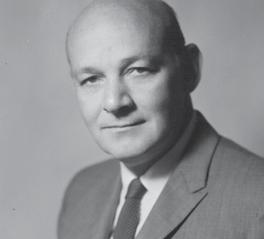
Harris served as director of the National Museum of Bermuda for decades and is an archaeologist best known for the Harris Matrix, used to depict best practices regarding the stratigraphy of an excavation. Possibly most famously explained in the Principles of Archaeological Stratigraphy, the Harris Matrix has been around for almost half a century and continues to be considered an industry standard within the field.
Linda
Postbac Premed
An obstetriciangynecologist and advocate for maternal health and representation in healthcare, her work is still felt decades later—during Dr. Burke’s career, there were marked decreases in the infant mortality and stillbirth rates.

Authoring the book The Smart Mother’s Guide to a Better Pregnancy: How to Minimize Risks, Avoid Complications and Have a Healthy Baby, she credits seeing her first delivery as a volunteer at Harlem Hospital as leading her toward her life’s work.
This former NYPD undercover detective cracked the code, being accepted into the highly competitive MD-PhD program at Weill Cornell Medicine in his 40s. In a New York Times profile, he credited seeing his daughter get support for attention deficit hyperactivity disorder (and subsequently thriving) as the most impactful encouragement in his decision to return to school.


One of America’s great pioneers, she was the first woman to fly solo across the Atlantic when she landed in Northern Ireland in 1932, breaking gender barriers when it came to aviation and other male-dominated arenas.
U.S. ambassador to Panama from 1955 to 1960. He held posts in the U.S. Foreign Service in Mexico, Spain, and Canada prior to serving in Panama.
American diplomat and Medal of Freedom recipient, he was one of the China Hands, whose careers in the Foreign Service were ended by McCarthyism and the reaction to the loss of China. Wrote Dragon by the Tail: American, British, Japanese, and Russian Encounters with China and One Another and Foreign and Other Affairs.

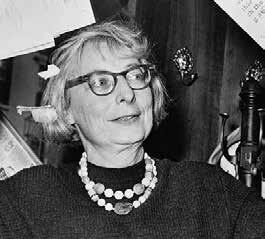
Author of The Death and Life of American Cities, she led a community-based approach to urban planning that is still felt today. A 2016 New Yorker article said of Jacobs: “Her admirers and interpreters tend to be divided into almost polar opposites: leftists who see her as the champion of community against big capital and realestate development, and free marketeers who see her as the apostle of selfemerging solutions in cities.”
A Columbia history professor who received the 1994 Bancroft Prize, one of the most distinguished academic awards in the field of history. He taught at a time when history was being made, beginning in the innocence of 1960 and continuing through the end of the Cold War. Receiving his MA and PhD from Columbia, McKitrick is known for his work on the development of the party system, slavery, and the Old South. His book, Andrew Johnson and Reconstruction, was published the year he began teaching at Columbia. (Photo: McKitrick Papers, RBML, University Archives)

Served as a U.S. senator from Alaska from 1969 to 1981 and is noted for reading previously unreleased sections of the Pentagon Papers into the Congressional Record—at a hearing as a filibuster in protest of the Vietnam War during a time when they were not widely reported. Gravel played a key role in passing legislation to build the TransAlaska pipeline, and he also ran for president of the United States.

Founded the nonprofit organization People’s Movement for Human Rights Learning in 1988, and went on to receive the 2003 United Nations Prize in the Field of Human Rights.
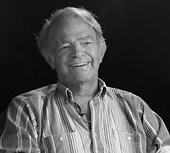

A philanthropist who founded the Stewart R. Mott Foundation. According to the New York Times, among the areas of Mott’s philanthropy were birth control, abortion reform, sex research, arms control, feminism, civil liberties, governmental reform, and gay rights. He also joined conservatives in the fight against the 1974 campaign finance law, taking away some of the limits that came with it.
Noted economist, Fulbright scholar, and former James H. Rudy Professor of Economics at Indiana University, he worked as division chief at the International Monetary Fund, senior staff economist for the U.S. President’s Council of Economic Advisers, and program director of economics for the National Science Foundation.
Jehuda Reinharz

First professor of Jewish history at the University of Michigan where he created the interdisciplinary program that formed the basis for the University’s Frankel Center for Judaic Studies. He later served as president of Brandeis University from 1994 to 2010, and become president and CEO of the Jack, Joseph and Morton Mandel Foundation.

Perezi
Kamunanwire
An academic and diplomat, he was Uganda’s ambassador to the United States from 2006 to 2013. Kamunanwire received an MA in international relations from Columbia University.
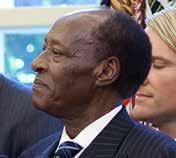
Peter
A former congressman of Pennsylvania, Kostmayer is now president of Citizens Committee for New York City, which makes direct cash grants for neighborhood-led projects and businesses that improve quality of life in New York City, particularly focusing on low-income areas.

Founder and director of the Cato Institute Center for Constitutional Studies and publisher of the Cato Supreme Court Review, he held multiple posts in the Reagan administration and received the Benjamin Franklin Award for excellence in writing on the U.S. Constitution from the Bicentennial Commission. Pilon was the recipient of the 2001 GS Medal of Distinction and established the Roger Pilon Fellowship for GS students.
The 1998 recipient of the GS Owl Award and a 2014 recipient of the Council for Advancement and Support of Education’s E. Burr Gibson Lifetime Achievement Award, she is a former special advisor to President Bollinger and a member of the GS Board of Visitors—and Columbia’s Alumni Center bears her name. When Bollinger assumed his role as president, it was Feagin he asked to serve as head of alumni and development, and she was key in the achievement of raising an unprecedented $6.1 billion for the historic Columbia Campaign. She is also a recipient of the 2011 Columbia Alumni Medal.

Postbac Premed
A governor of Vermont from 1991 to 2003 and chair of the Democratic National Committee, he was an early factor in the 2004 Democratic presidential candidate race and is considered by many to have helped change political strategy by his utilization of the internet for campaigning. (Photo: St. George’s School, Newport, RI)
Former president of Middlesex Community College (MCC) and 2016 GS Class Day Keynote Speaker, Mabry believes the community college system is an invaluable gateway that can make a world of difference for millions.

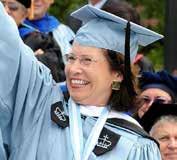
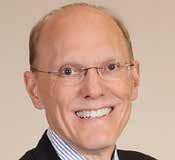
To Mabry, the highlights of his time as president of MCC included promoting an institution-wide focus on student success, quickly moving the institution to number one in rankings in Massachusetts based on student outcomes, along with bringing in the largest donation in the college’s history to support a new performing arts center.
Writer, historian, professor, and activist, she is a fellow of the Society of American Historians and John D. MacArthur Chair at the University of Illinois at Chicago. Serving as president of the National Women’s Studies Association from 2016 to 2018, Ransby also directs the campus-wide Social Justice Initiative.


Swirin-Yao has spent much of her career helping students flourish in academia. Presently executive director and vice president of external affairs at Westchester Community College, other higher educationrelated posts include executive director of the York College Foundation and vice president for institutional advancement at York College of the City University of New York.
U.S. ambassador to South Africa from 2013 to 2016, Gaspard was the national political director of Barack Obama’s 2008 presidential campaign and would later serve as director of the White House Office of Political Affairs. He was also a 2018 honoree of Columbia University’s Office of the Secretary.

Served as 27th Manhattan borough president and currently represents the 6th New York City Council District. Multiple GS alums, including Aries de la Cruz ’09, Laetitia Butler ’16, and Serengeti Timungwa ’22, have worked and interned with Brewer, who was also GS’s 2014 Class Day Keynote Speaker.
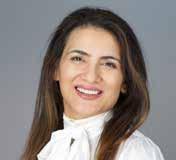

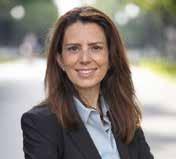


Niyizonkiza is the founder and head of Village Health Works, a nonprofit public health clinic operating from his home country of Burundi. The clinic provides quality healthcare to approximately 200,000 people across several provinces and employs more than 700 individuals. Niyizonkiza’s story would be told in Tracy Kidder’s Strength in What Remains. He was also GS’s 2022 Class Day Keynote Speaker.
Recently-appointed dean of Columbia’s School of International and Public Affairs, she has served as director of the Arnold A. Saltzman Institute of War and Peace Studies, launching numerous initiatives including Columbia Global Centers and the Committee on Forced Migration to help students and scholars displaced by the crisis in Afghanistan. This work was expanded to include those seeking refuge from the war in Ukraine. In 2021, Yarhi-Milo launched the Emerging Voices in National Security and Intelligence program to attract and support students from underrepresented backgrounds interested in pursuing careers in those fields. A former intelligence officer who served with the Israel Defense Forces, she has authored Knowing the Adversary: Leaders, Intelligence, and Assessment of Intentions in International Relations and Who Fights for Reputation: The Psychology of Leaders in International Conflict.
Christopher
President of the Center for Civic Education, Riano has also served as a commissioner of the New York State Gaming Commission. Riano co-authored Marriage Equality: From Outlaws to In-Laws, which won a 2021 Silver Gavel Award, and is founder of the GS Recent Alumni Committee, former chair of the GS Alumni Association, and a lecturer in constitutional law and government at Columbia University. Recently, he became a member of the GS Board of Visitors.
Having founded the Global Autism Project in her early 20s, she has now served in that organization for almost 20 years. The Global Autism Project spans several continents and many countries, a leading offering being SkillCorps, a professional development travel program for self-advocates and autism service providers. Among her accolades, Ola Pinney is the recipient of Columbia’s 2009 University Medal for Excellence.

Sharing with the world a story of being abused and then starting over in the United States, she was named a Columbia Women’s Forum scholar, is an influencer on social media for women’s empowerment, and has returned to Columbia University as a student at the School of International and Public Affairs. Dabestani’s work with the Iranian Scholarship Fund has helped raise much-needed money for students from her homeland having trouble making tuition in the United States.
Gabreski was enshrined in the National Aviation Hall of Fame in 1978 and one of the top fighter pilots of both World War II and the Korean War. Taking to the air at Pearl Harbor, Gabreski went on to become the leading American ace in Europe. He enrolled at GS in 1947, its first year as a freestanding undergraduate college, and would later head the Long Island Railroad. In 1992, Suffolk County Airport was renamed in his honor as the Francis S. Gabreski Airport.


Welcomed into homes on one of the most popular shows of the 1960s, Gomer Pyle, U.S.M.C., before assuming the role of Gunnery Sergeant Vince Carter, Sutton served with distinction in the real-life U.S. military from 1943 to 1946, being awarded the Bronze Star and Purple Heart.

Army veteran Goldsmith is a champion of veterans’ rights and, today, fights the spread of misinformation in veteran communities. Goldsmith’s first bill, the Military Mental Health Review Board Improvement Act, would become law in 2014. The Fairness for Veterans Act and other legislative suggestions he developed while at Columbia were passed as part of the National Defense Appropriations Act and the Military Construction, Veterans Affairs and Related Agencies Appropriations Bill.
MilVets (Military Veterans of Columbia University) was founded in 2002 as a University-wide student group for military veterans and their allies by Richie Space ’05, Paul Yates ’05, Jed Celima ’04, Eric Chen ’07, and Justin White ’05. In 2020, Rachel Ballew ’20 became the first woman president of the group. Space, who received the University Alumni Medal in 2016, also co-founded the GS Recent Alumni Leadership Committee, known today as the General Studies Alumni Association.



To be a Rhodes scholar is one of the most prestigious honors in higher education. Two GS students who received the rare nod are Nur Arafeh ’13 (Photo: Michael DiVito), currently a fellow with the Malcolm H. Kerr Carnegie Middle East Center, and Luca Springer ’16, now CEO of Cleancard, a London-based company revolutionizing the diagnosis of sexually transmitted diseases. Arafeh and Springer are both graduates of the Dual BA Program Between Columbia University and Sciences Po.
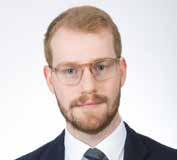

Three-time Cy Young Award winner, one of the greatest postseason players of all time, and among America’s greatest sports legends.
A “K” on a baseball scorecard stands for strikeout. It might as well stand for Koufax.
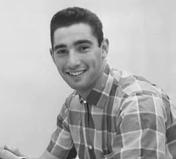
Pairs figure skater who was a national champion and competed in the 1988 Winter Olympics.

1994 Trent Dimas
Dimas won the gold medal on the horizontal bar at the 1992 Summer Olympics in Barcelona. Along with brother Ted, Dimas was a part of the University of Nebraska’s national championship gymnastics team.
2004
Competed in the 2008 Summer Olympics as a member of the U.S. dressage team. After suffering a serious accident while training a horse, she would go on to start helmet advocacy group Riders4Helmets.

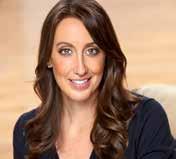
Team captain of the bronze medal-winning U.S. synchronized swimming team at the 2004 Summer Olympics.
A bronze medalist figure skater and the first to land a quadruple salchow in competition, Goebel would later work for Google.

Capturing the hearts of a nation as a thrilling and skillful skater, Cohen was a silver medalist at the 2006 Olympics in figure skating and a 2006 U.S. national champion. Touring with Stars on Ice before retiring from skating in 2010, Cohen went on to work as a disruptive change analyst for Morgan Stanley, and serves on the GS Board of Visitors.

After the launch of a pilot program in 2011, these graduates made history as part of GS’s first international dual degree program. Their success paved the way for similar programs, further cementing GS’s role in pioneering innovative approaches to higher education. Students focus on social sciences and language instruction at a Sciences Po campus in France for the first two years before transitioning to Columbia’s Morningside Campus to finish their coursework, graduating with two bachelor’s degrees in four years.
Note: Class years in black type indicate nongraduate alumni.
Lisa Rosen-Metsch is the School’s first alumna to serve in the role, having graduated from the Joint Degree Program with List College of the Jewish Theological Seminary. Her research has been continuously funded by the National Institutes of Health and the Centers for Disease Control and Prevention and has resulted in over 250 publications in highly regarded journals including the Journal of the American Medical Association (JAMA), Addiction, and the American Journal of Public Health.
Prior to stepping into her role as Dean of GS, she served as the Stephen Smith Professor and Chair of the Department of Sociomedical Sciences at the Mailman School of Public Health, and continues to teach in the department.
(Photo: Sara Fox)


Over the past two decades, Columbia University and the School of General Studies have led the nation in the inclusion of military veterans in higher education. To build on these efforts, Columbia established the Center for Veteran Transition and Integration (CVTI) to serve the veteran community at Columbia while also offering services to veterans in higher education across the country. Since its founding in 2017, CVTI has become a national leader in addressing the challenges veterans face as they transition from military service to higher education and on to meaningful employment, and has served tens of thousands of veterans on this journey.
A new home for the CVTI has recently been built in Kent Hall to support this growing community. The space is designed to accommodate a range of services and provide a dedicated place where veterans can connect with each other at Columbia; it will also be a hub for collaboration with partners such as the Columbia University MilVets student group, as well as organizations across and outside the University.
Developed by the Planning & Capital Project Management group in collaboration with the School of General Studies, the space was designed by Matiz Architecture & Design to be open and flexible, with a mix of private offices, conference rooms, workstations, co-working stations, and two lounges for informal gatherings and events.

 By Nancy J. Brandwein
By Nancy J. Brandwein
A career as a scholar might seem a far leap from one as a professional dancer, but for Ariel Osterweis ’06 writing on performance is “very close to the practice of dance and choreography.” A performance studies professor at California Institute for the Arts (CalArts) Sharon Lund Disney School of Dance, Osterweis is particularly interested in writing and researching on dance and performance through the lenses of race, gender, sexuality, and class. It turns out that the movement from experiencing dance in her body and contextualizing it socioculturally was not only natural but also allowed them to be their authentic self—a queer, mixed-race (Korean/ German-Jewish) woman who goes by she/ they pronouns.
Osterweis started dancing in New York City as a teen, training at the Martha Graham School and then at the Ailey School on a two-year scholarship. They then danced professionally for several companies through their twenties, including Desmond Richardson’s diverse, inclusive Complexions Contemporary Ballet and in an Afro Asian opera with Fred Ho. By the time Osterweis was moving to choreography, they felt both a surging intellectual curiosity and frustration at not being able to satisfy it. A friend suggested applying to General Studies.
“At GS I was in a period of deep learning and creative expansion,” says Osterweis, who received her BA in anthropology. “I had incredible professors who grounded me in sociocultural theory, ethnographic research, and writing that really pushed the boundaries…I was able to apply anthropological methods and concepts to queer subversive cultures of performance.”
Under advisors Michael Taussig and the late Elaine Combs-Schilling, Osterweis completed an honors thesis that became
the seed for her research as a PhD student in performance studies at UC Berkeley and, eventually, a book: Body Impossible: Desmond Richardson and the Politics of Virtuosity, due out this year from Oxford University Press.
Osterweis writes for a wide range of peerreviewed journals, makes and appears in performances, and cares for her three children, all while teaching CalArts students, whom she loves for their “radical creativity.” And because the GS experience allowed her, a nontraditional student, to tap into her own burgeoning creativity, Osterweis remains a passionate supporter of the school. “I’d especially love to support students of color, queer and trans students.” These students are more likely to operate in what anthropologists call “liminal spaces” or what is called “betwixt and between.” As a queer and mixed-race person working in multiple disciplines, Osterweis is deeply familiar with this state of being, moving through the world with ease in certain settings and experiencing exclusion in others. But, as her career shows, the in-between space is also a fruitful place from which to dance, make performances, and create language to explore the nuances of identity and performance.
Ariel Osterweis ’06, a boundary-breaking professor and writer, credits GS with helping develop her radical creativity.

Columbia University School of General Studies has embarked on an ambitious multiyear campaign to raise $60 million to increase scholarship support and expand access to a GS education.
As it was 75 years ago, the world today is in need of continued excellence and innovation in the face of contemporary challenges. In 2020, Columbia University launched a fundraising initiative singularly focused on improving financial aid for all students. As the only undergraduate college fully dedicated to and specifically designed for nontraditional students in the Ivy League, GS is in a unique position to take advantage of this unprecedented opportunity and renew its commitment to attracting, educating, and supporting the best and brightest nontraditional students. All gifts to the School of General Studies help support this important initiative.
Scholarship gifts to the endowment are eligible for a dollar-to-dollar matching opportunity.
Gift planning and bequest documentation are matched with immediate scholarship endowment.
All gifts to the annual fund help support financial aid for GS.

Larry Lawrence ’69, ’71BUS has given the Student Support Initiative an incredible start with his deep generosity, agreeing to lead our efforts as alumni chair, continuing a legacy of support for GS that goes back 35 years. With his partnership, and with the unwavering commitment of our alumni and friends, this initiative will open doors and transform lives for GS students. Through the Larry J. Lawrence Match Fund, Larry has made a commitment of $5 million to match scholarship gifts to the School. Endowed gifts between $250,000 and $500,000 paid over four years qualify to be matched dollar-fordollar by Larry’s gift—with the power of the match turning $5 million into $10 million to reach $60 million.
To learn more, please reach out to gsalumni@columbia.edu or contact Jill Galas Hickey at 212-853-2444.
Over 7 0% Receive financial aid
Nearly $30M Progress to goal
$60M
$44 M Total unmet need
259 Named scholarship recipients
9 New bequest intentions
34 New scholarship commitments
Scholarship commitments
$14M+ up 67% (three-year average)
$18,070 Average award for new students
$24,363 Average award for continuing students
1,731 Students receiving institutional aid
On May 16, the School of General Studies celebrated the accomplishments of the 579 members of the Class of 2022. Honoring its commitment to hold in-person celebrations once it was safe to do so, the School of General Studies also celebrated the Classes of 2021 and 2020.

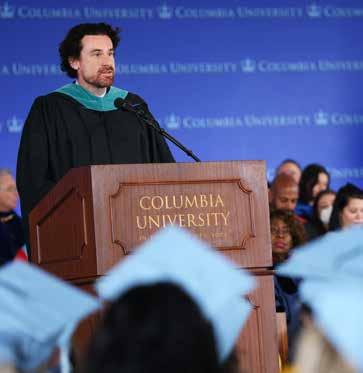

1. GS graduates line up in Lerner Hall.
2. An excited GS graduate heading back to her seat after walking across the stage.

3. Mathias Vicherat, President of Sciences Po, addresses the graduates.
4. University President Lee C. Bollinger, Dean Rosen-Metsch, and Class Day Speaker Deogratias “Deo” Niyizonkiza ’01 walk into the ceremony.
5. Columbia College Dean Josef Sorett, School of International and Public Affairs Dean Keren Yarhi-Milo ’03, Dean Rosen-Metsch, and Professor Gregory Wawro pose for a selfie.

6. Alison (Ali) Block ’20, who was selected to speak to the unique experiences that the Classes of 2020 and 2021 shared during the COVID-19 pandemic.

7. Class Day Keynote Speaker Deogratias “Deo” Niyizonkiza ’01.
8. Valedictorian Ashley Cullina with former GS Dean of Academic Affairs Victoria Rosner.

9. Dean Rosen-Metsch and graduate Nazeer Abdul-Salaam.
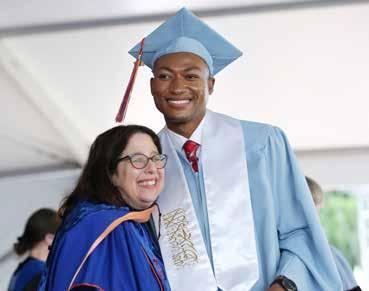

10. Salutatorian Rose Kim addresses the graduates.

The Columbia University Postbaccalaureate Premedical Program celebrated the Class of 2022 on May 13. The ceremony was also an in-person opportunity to honor the Classes of 2021 and 2020, whose graduation ceremonies had been held virtually.
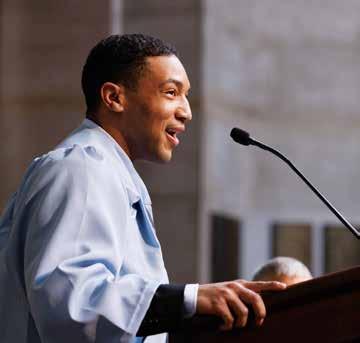

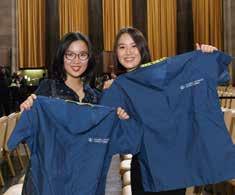

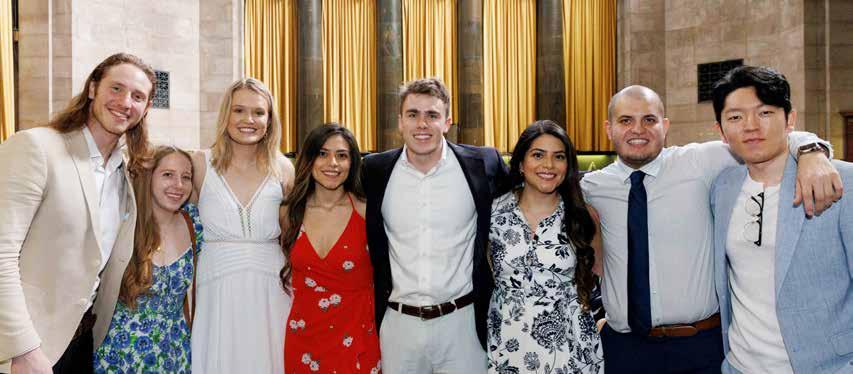



For Daniel Harrich, the thought of living in one place for four years was one of the most daunting aspects of the college experience. Before enrolling in the Dual BA Program Between Columbia University and Sciences Po, he moved to different countries every few years due to his dad’s job, from Sudan and Sri Lanka to Syria and Lebanon. He described the Dual BA Program as one of the most rewarding adventures he has ever had, learning not only a lot about himself but also the world around him. Above all, he said, the GS community was the defining part of his experience. “When I think back upon these four years, the people I’ve met really stand out the most,” he said. With a degree in financial economics, Harrich landed a role in the New York City consulting industry.


Part of the inaugural cohort of the Dual BA Program between Trinity College Dublin and Columbia University, Jane Loughman knew the Program would provide the perfect opportunity to pursue her studies in English in two literature-rich cities. While the pandemic interrupted her junior year at Columbia, she took classes online from her home in Ireland and finally made it to New York City in the summer of 2021. At Trinity and Columbia, she was involved in theater and journalism, writing for both the Trinity News and Columbia Spectator
Among her proudest accomplishments at Columbia were being inducted into the GS Honor Society and completing her senior essay, a 10,000-word dissertation on Joyce Carol Oates’s retellings of Henry James’s The Turn of the Screw. Loughman is now pursuing her master’s degree in modern and contemporary literature at Oxford University.
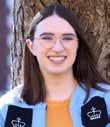

Anne Cordova
O’Connell ’s journey to Columbia began in a prison library. “Though my world had physically become so small— my jail cell, the chow hall, and the library— my mind had begun to expand again,” she recalled. “No amount of drugs or prison time could erase the fact that I had always loved learning.” Reading became her respite from the loneliness of life behind bars, and she devoured everything from classic novels to math textbooks. After her release, she participated in Columbia’s Justice-in-Education program, an initiative aimed at giving educational opportunities to formerly incarcerated scholars. She then found her way to GS, where she graduated with a degree in English and history, setting her sights on a career in the legal field and potentially law school.
James Rice’s path to GS began in 2001 when, two months after 9/11, he joined the military at age 17. He served four years, including a deployment to Afghanistan, before joining the Secret Service. While serving under Presidents Bush and Obama, Rice got to see firsthand what it meant to take responsibility for one’s actions and be a leader. He described his proudest moment at Columbia as being the overall acceptance by the community, especially as an older student; he always felt welcome in his classes. Belonging to the Columbia community was his proudest and most unexpected moment. Rice graduated with a degree in archaeology.
Attending high school 10 miles outside of New York City and going through an International Baccalaureate program, Christian Rodriguez fell in love with the city and global education simultaneously. Before GS, he spent a year studying in the pre-college division at the Cooper Union School of Art, interning in asset management and immersing himself in the local gallery, museum, and finance scenes. The Dual BA Program between Trinity College Dublin and Columbia University was a natural extension of his interests, allowing him to pursue his passions in both Europe and New York. Rodriguez graduated with degrees in Hispanic studies and European studies and joined Goldman Sachs as an analyst working on shareholder advisory and activism defense following graduation.
From working with embassies and dignitaries in New York to assisting with humanitarian efforts at nonprofits, Darin Sawan felt as if she’d accomplished a lot without a college degree. But the desire to elevate herself, as well as her understanding of politics, pulled at her. As an Egyptian first-generation college student, she didn’t think her voice mattered and was initially afraid to apply to Columbia. But a proverb guided her: “The best time to plant a tree was 20 years ago. The second-best time is now.” She recalled thinking that the perfect time to go back to school didn’t exist— she just needed to do it. Majoring in Middle Eastern studies and sustainable development challenged Sawan to achieve things she never thought she was capable of. And it all started with taking that first step to apply.
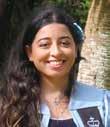
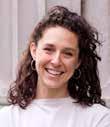
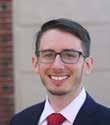
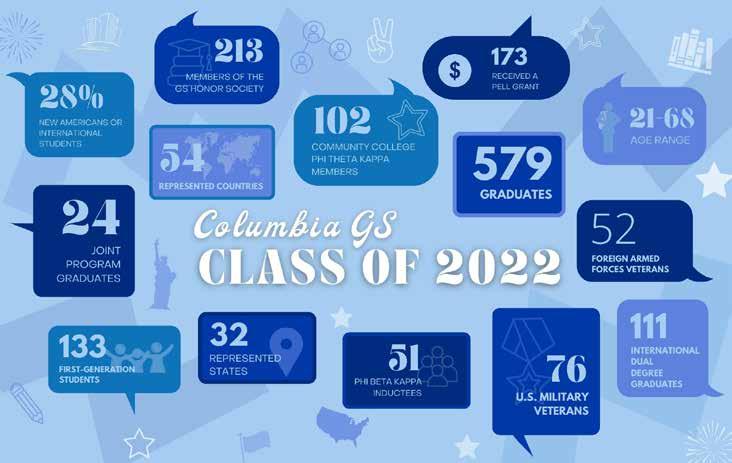
After serving eight years in the Army, much of it as a Special Operations Medic, Ricky Ditzel Jr. was inspired by his overseas military experience to pursue a career in medicine. Before leaving the military, he and a group of friends established the Special Operations Medic Coalition, a 501(c)(3) nonprofit organization focused on helping military special operations medics transition from military provider to veteran professional. Two days after signing off of active duty, he flew to New York City to direct operations at a New York-Presbyterian COVID-19 field
hospital. There, he met other Postbac student volunteers who ignited his interest in the Program. Among his many Columbia accomplishments, he helped set up Task Force Mom, a telemedicine network for Afghan women and children following the Afghanistan withdrawal, and served as a clinical site director at an at-risk Afghan refugee camp. Now, Ditzel serves as a research associate at Mt. Sinai’s Crary Lab while preparing for the MCAT.
After a career as a licensed funeral director and time spent in pharmaceutical sales, Julie “Julz” Greene decided to pursue a passion for medicine in the Postbac Premed Program. While at GS, she was co-president of the Social Justice Medicine Club; a volunteer
with Project STAY, which gave her hands-on experience counseling youth on sexual health; and was involved with the Underrepresented in Medicine (URM) group and the American Medical Women’s Association. During the height of the pandemic, she served as vice president of the Medical School Fair for the Postbac Premed Student Council and for the first time in the fair’s 20-year history, operations were moved swiftly and successfully online. She is also the recipient of a GS Change Agent Award and plans to apply to medical school for the 2023 entering class.
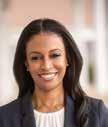
“Graduating from Columbia—with a double major in African-American studies and sociology—is something I never could have imagined,” said Jarrell Daniels, who came to GS in 2019 shortly after completing a nearly six-year prison sentence. Daniels, a native of the Bronx, has dedicated himself post-incarceration to a multipronged approach to institutional reform that seeks to simultaneously address inequalities that push disadvantaged youth into dangerous situations, harmful biases within the criminal justice system, and challenges faced by returning citizens.
“It would be a lie if I said life before my incarceration was filled with hope and prosperity,” recalled Daniels. “For most of those 18 years, I lived in a state of fear and uncertainty, not knowing whether this would be the month my family faced another eviction, or if I would have to continue to watch my mother being domestically abused.” The instability of Daniels’s childhood culminated with a run-in with the law as a teenager, which led to his incarceration.
During Daniels’s final days behind bars, he enrolled in Inside Criminal Justice, a seminar
run by Columbia’s Center for Justice and the Queensboro Correctional Facility that brought together incarcerated students and prosecutors. “I had never taken a college course but I saw it as a way to redeem myself and prepare to return to society,” said Daniels. “I wanted people in power to see that my life wasn’t disposable.”
After his release, Daniels enrolled at the Borough of Manhattan Community College before transferring to GS. He also deepened his relationship with the Center for Justice as a Justice-in-Education scholar and the founder and program manager of the Justice Ambassadors Youth Council (JAYC) program.
JAYC continues the collaborative approach Daniels experienced through Inside Criminal Justice by bringing together disadvantaged youth and local government officials to coauthor transformative policy proposals.
JAYC is only one example of Daniels’s work combating institutional inequities, from giving a TED talk on his personal experiences to collaborating with Columbia University School of Social Work Professor Desmond Patton on a virtual reality project addressing the use of social media to prejudicially profile inner-city youth. Daniels has also received numerous fellowships and awards, including
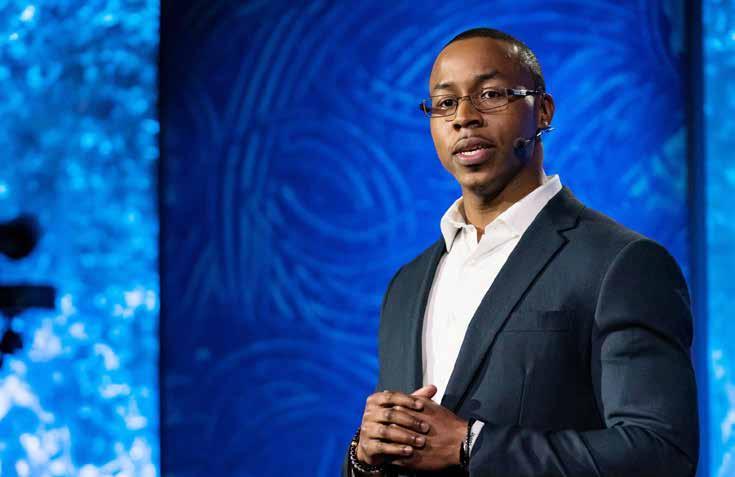
being named a Soros Justice Fellow in 2019; a Truman scholar in 2021; and the winner of the GS Alumni Key Award in 2022 in recognition of exceptional achievement, leadership, and service.
As a recent graduate, Daniels will continue his advocacy and has plans for law school on his way to becoming a civil rights attorney and social enterprise executive. Said Daniels, “My story is not unique; it is one that belongs to generations of Black men in America. My only hope is to change the narrative about people like me. We are more than our worst mistakes. We are human. We deserve to live without the threat of death and we, too, want to contribute to making society more fair and just.”
“As a Black man with a criminal record, I have two strikes against me. I see education as the only equalizing factor, the only way to prevent that third strike.”
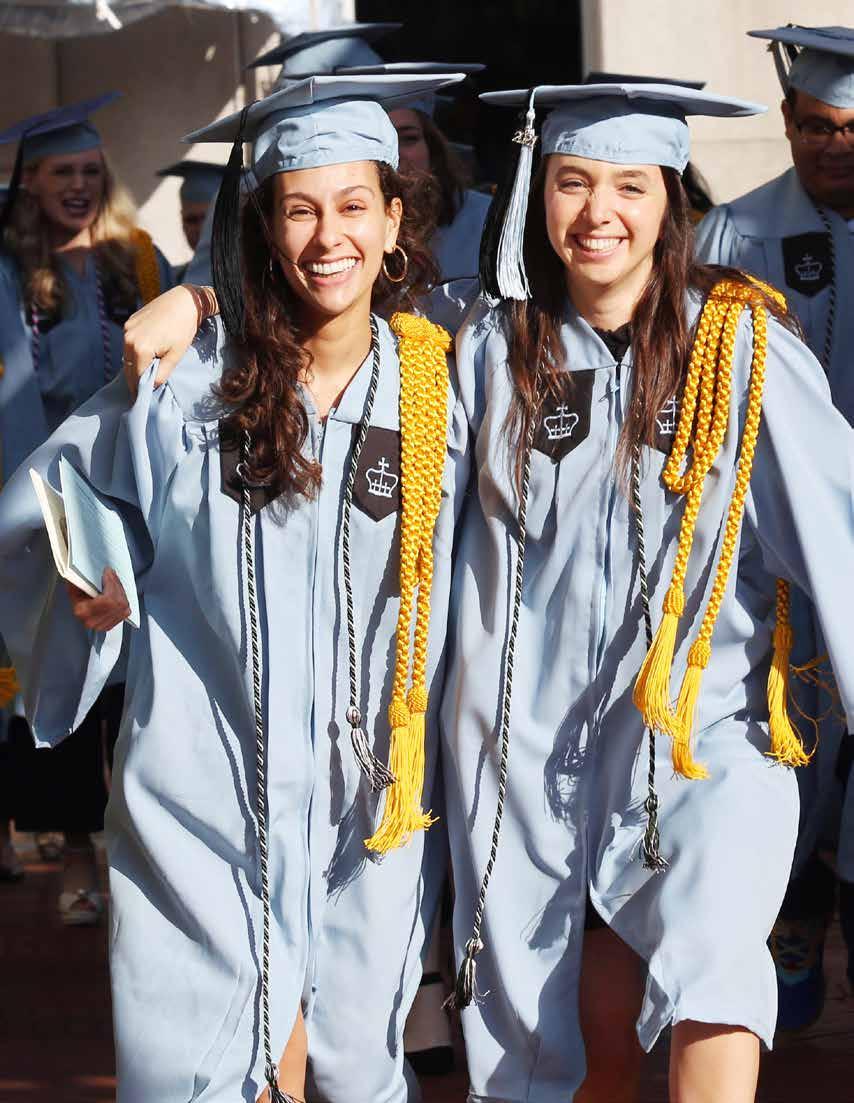
What drives you to contribute to the GS community?
Joshua: There has been a great deal of growth at GS in the relatively short period of time since I graduated. When I come back to campus, I’m struck by a greater GS presence everywhere, not just Lewisohn Hall. I credit the deans, staff, students, and volunteers with fostering a GS culture that is of real value on top of the terrific education at Columbia. As we celebrate 75 years, GS is still a young institution, and we can make a real positive impact on what our school will be in the next 75 years.
Serena: Following graduation, I attended a couple of alumni association meetings. This led to helping organize the 70th anniversary Reunion, which also marked the late Dean Awn’s 20th anniversary. I was always happy to see Dean Awn at these events because he had been so supportive of me during my time at GS. So, when the opportunity to join the board arose, I jumped at it. Joining was a way to stay in touch with friends, to learn about the latest developments at the school, to contribute to an institution that has helped me so much, and to witness Dean RosenMetsch’s incredible commitment and stewardship.
What has been the most fun and/or rewarding GSAA project with which you have been involved?
Joshua: My job as a member and co-chair of the GSAA Awards Committee is to help persuade the School and University to bestow honors that recognize the contributions and achievements of alumni, faculty, and friends. These honors include the Owl Award, the University Medal for Excellence, the Alumni Medal, and honorary degrees. Applauding people’s accomplishments is fun work. It is especially rewarding to see GS alumni receive recognition from the University.
Serena: The most fun project was assisting in the redesign of the GS website. We met with designers and user-experience researchers, and we participated in activities to try to understand better how people perceive and navigate the website. The most rewarding project was talking with freshmen and giving them advice on how to navigate their first year on campus.
What is your favorite GS memory?
Joshua: I had a work-study job in the GS Office of Admissions. We were on the main floor in Lewisohn, and people would flow in and out all day—Postbac Premeds, dancers, everyone. If you were to imagine
consolidating and condensing that stream of diverse characters into a snapshot, it’s like a collage that signifies some of my best times as a student at Columbia and the friends I made there.
Serena: My favorite memory is when two classmates and I prepared for the dreaded Mathematical Inference final exam. We sought out a quiet location where we could study together. That was not an easy task, but we discovered an empty student lounge in the Department of Physics and camped there for three days. It was stressful and intense, but the story has a happy ending—we all passed the exam.
Joshua Kraus ’93
Current Position: Partner at Bortstein Legal Group, with a focus on technology, media, and privacy
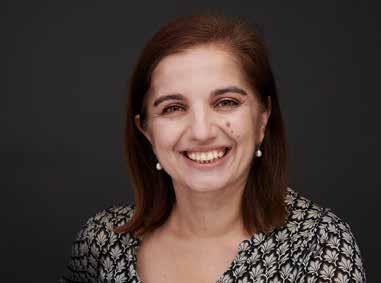

Free-time Interests: Tennis; hiking
Serena DeStefani ’15
Current Position: PhD student in cognitive science at Rutgers University
Free-time Interests: Reading; working out; socializing with friends
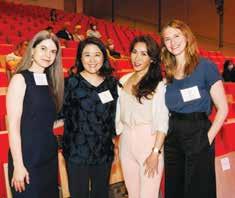
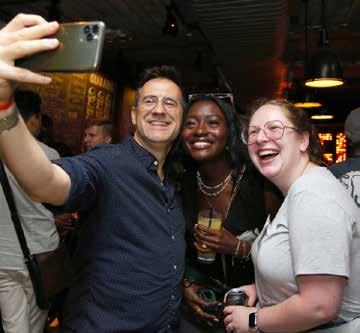

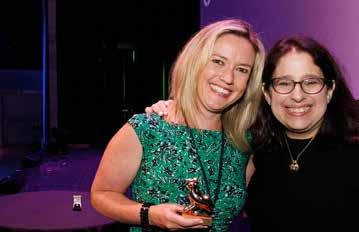

For the first time in three years, hundreds of alumni, family, and friends returned to the Morningside Campus to reconnect in person, celebrate, and enjoy a variety of events during Reunion Weekend, held last June 9–11. The festivities included the GS Reunion Dinner, Veterans Reception, an exclusive film screening, and much more.
The weekend kicked off with a screening of the documentary film Calendar Girl, executive produced by Kikka Hanazawa ’00, founder of the nonprofit Fashion Girls for Humanity and a member of the GS Board of Visitors. The film tells the story of Ruth Finley, who in 1945 created the iconic pink Fashion Calendar—a publication that continues to serve as the premier event resource for the fashion industry. After the screening, Hanazawa participated in a conversation moderated by Sara Ziff ’11, Founder and Executive Director of the Model Alliance.
The annual Veterans Reception brought together the military community throughout Columbia in celebration of their service and contributions. Additionally, attendees learned about the support offered by Columbia’s Center for Veteran Transition and Integration to veterans at Columbia and nationwide.
GS hosted its annual Celebration of the Performing Arts at Columbia, which featured presentations by alumni and students. Ali Paige Block ’20 performed “Solo from Solidarity” choreographed by Daniel Mantei Keene of the Columbia Ballet Collaborative, and Brittany Shinay ’23 performed “Remembrances” from the film Schindler’s List The performances were followed by a discussion between Michael Novak ’09, Artistic Director of the Paul Taylor Dance Company, and Dean Rosen-Metsch.

The weekend concluded with the annual GS Reunion Dinner, attended by more than 250 alumni, friends, and guests in Roone Arledge Auditorium in Lerner Hall. Allison Fillmore ’97, Chair of the GS Board of Visitors, welcomed the guests, and Dean Rosen-Metsch shared School news, including an update on the unprecedented Student Support Initiative, a fundraising effort focused on improving financial aid for all Columbia students. After dinner, the 2022 Owl Award was presented to Kirsty Jardine ’15, ’16PH, Co-Chair of the GS Alumni Association, in recognition of her exemplary service to the School of General Studies.
While the popular Milestone Breakfast during Reunion Weekend was open to alumni from all class years, a special champagne toast was raised to guests celebrating their first, fifth, and 10th Reunions … and beyond!

On the eve of GS Class Day in 2022, more than 200 alumni from the Dual BA Program Between Columbia University and Sciences Po came together to celebrate the Program’s 10th anniversary. The Program is the oldest and largest international undergraduate dual degree program in the United States, and since its launch GS has expanded
In October, GS hosted a day of events to welcome alumni and their guests back to Morningside Heights. The day began with a breakfast for students and their families, followed by a lecture by Alfredo Spagna, PhD, Lecturer in the Discipline of Psychology and Director of Undergraduate Studies in Neuroscience & Behavior at Columbia. After a special luncheon at Baker Athletics Complex, alumni, students, and fans cheered for the Lions in their game against Dartmouth, which included a half-time presentation celebrating President Lee C. Bollinger’s 21-year tenure as the longest-serving university president in the Ivy League.
its partners to include City University of Hong Kong, Trinity College Dublin, and Tel Aviv University. Sciences Po President Mathias Vicherat was in attendance, Anton Fredriksson ’15 gave welcoming remarks, and Dean Rosen-Metsch led a toast as alumni from across all class years enjoyed the momentous occasion.
As part of the School’s ongoing Dinner and Discussion series, four alumni visited campus in November to discuss their careers in technology and give advice to those interested in pursuing work in technology. The alumni panelists were software engineer Dan Burkhardt, IBM Sales Leader Sam Hughes, Ethan Nam of Amazon Web Services, and Kiara Reed of Google Travel.
Many GS graduates also participated in the School’s Alumni in Conversation events, an online series in which alumni share their experiences and offer valuable insights. Past events have included conversations on topics such as working in government, changing careers, and artificial intelligence.
Michael Novak ’09, Artistic Director of the Paul Taylor Dance Company, welcomed the GS community to a performance last spring as part of the inaugural City Center Dance Festival. Guests were treated to a behindthe-scenes talk with Novak, who spoke about the Company’s first dance season since the beginning of the pandemic, after which the Company presented three classic pieces that reflect the spirit of love and resilience that was so vital during the pandemic: Esplanade (1975), Roses (1985), and Offenbach Overtures (1995).
Last fall, Alicia Graf Mack ’03, Dean and Director of Dance at The Juilliard School, invited students and alumni to see Julliard New Dances: Edition 2022, a showcase of performances by leading choreographers and performers.




In December, chef, TV host, artist, and author Jacques Pépin spoke to more than 250 students and alumni from across Columbia at an exciting virtual event. Dean Rosen-Metsch led a lively conversation that included Pépin’s memories as a Columbia student as well as his advice for aspiring chefs.
“My years at Columbia University changed me completely,” said Pépin, who recalled his time at GS as some of the happiest years in his life. “I never would have done what I did without Columbia.”
Pépin is the recipient of many accolades, including France’s highest civilian honor, La Légion d’Honneur, and 16 James Beard Foundation Awards. His favorite award of them all? “Well,” he said, “a very special award was when I got my PhD from Columbia University.”
During the pandemic, a diverse range of virtual events were made available to alumni, allowing them to connect and engage, no matter where they lived. “Beginner’s Meditation and Yoga,” a popular online offering, was led by Victoria Saretzky ’16.

The GSAA works to enhance the GS alumni experience from the beginning of one’s journey as a student to throughout one’s life as a member of the worldwide Columbia University community.
GS undergraduate and Postbac Premed Program alumni are members of the Columbia Alumni Association (CAA) and the General Studies Alumni Association (GSAA), and are provided a broad array of services, benefits, and discounts. This includes a directory of alumni clubs, events, and interest groups; access to Columbia facilities; and support from the Center for Career Education.
The GSAA strives to identify alumni who make a difference in their communities, whose career or volunteer work is noteworthy, or who contribute to Columbia in ways that enrich the GS community. Prestigious awards and honors are presented each year by both the University and the School of General Studies. Contact gsalumni@columbia.edu for more information or to submit a nomination for yourself or someone you know.
JUNE 1–SATURDAY, JUNE 3
Last July, alumni and students gathered at the Painting Lounge in Harlem for a fun and creative night of art-making, guided by a professional instructor.

Stay connected with the GS alumni community by letting us know where you are and what types of programming interest you. Events are held both in person and virtually. We would love to hear from you!
GSAA Board Co-Chairs:
Arthur Bingham ’84GS
Kirsty Jardine ’15, ’16PH
Executive Committee:
Megan Calderazzo ’20
Serena DeStefani ’15
Joshua Kraus ’93
Mayumi Otsuki ’18
Brittne Rivera ’14
Michael Rovner ’18
Tatiana Ryabova ’19
Christopher Thompson ’21

Janet Kourany ’65, ’77GSAS is a professor of philosophy and gender studies at Notre Dame University. She contributed a chapter titled “Bacon’s Promise” to the 2021 book Science, Freedom, Democracy.
Jehuda Reinharz ’67 received an honorary doctorate degree from Hebrew University in Jerusalem in 2022.

Jacques Pépin ’70, ’72GSAS recently released his new book, Art of the Chicken: A Master Chef’s Paintings, Stories, and Recipes of the Humble Bird
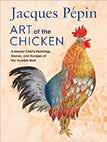
Kristi Zea ’74 served as production designer for the suspenseful miniseries The Watcher, which streamed on Netflix in the fall of 2022.

How did you come to study at GS?
Shortly after high school I enlisted in the U.S. Army so that I would be able to afford university. The Army was a valuable and formative experience, but it wasn’t always fun. At GS, I would often stop and recognize how lucky I was to be in this beautiful oasis in the middle of a city I always wanted to live in, learning things I wanted to learn from professors I admired and respected.
How did GS help prepare you for your career?
I was interested in the Middle East and … eventually I got into a program that allowed me to do my last year of GS concurrently with my first year of graduate studies at the School of International and Public Affairs (SIPA). The combined exposure to political science/Middle East languages and cultures through GS and international affairs through SIPA made diplomacy a viable career path.
Can you share some career highlights?
My first posting was Iraq during the war, which was a huge challenge. I had the benefit afterward of serving in Paris and lived a life that might be closer to what people imagine when they think of diplomats. Prior to my current post dealing with Libya, I was at the U.S. Mission to the United Nations where I worked on the Security Council—that was another situation (like Columbia) where I would sometimes pinch myself, sitting elbow to elbow with other diplomats trying to find peaceful solutions to the world’s most pressing problems.
What are some challenges you face in your work in Libya?
There are no shortages of challenges in Libya, but ultimately it has all the elements to be a historic success story. It has a relatively small population, it is rich in resources, the differences
Kevin Krajick ’76, ’77JRN, Senior Editor for Science News at Columbia’s Climate School, was featured on the podcast PlanetGeo last fall, discussing his career as an award-winning science journalist.

Steve Brozak ’82, ’94BUS, President of WBB Securities, an investment bank and research firm that specializes in the biotechnology, specialty pharmaceutical, and medical device sector, wrote the article “7 Covid Realities to Consider in 2023,” published in late 2022 by Forbes
Award-winning filmmaker Whitney Dow ’86 co-directed the documentary The Big Payback, which premiered on PBS’s Independent Lens on Martin Luther King Jr. Day this year.

between groups within the country are not insurmountable, and the population values their rich culture and recognizes the importance of education. The difficulty, as with many places in the world, is corruption and lack of trust. I’ve tried to impress upon Libya’s leaders that their political rivals are not their enemies. The real enemy in Libya is time—someday someone will find an alternative to fossil fuels, which is Libya’s primary source of revenue, and the core question is where Libya will be when that day comes.
What do you enjoy doing in your free time?
I like music a lot and play some guitar, though not particularly well. One of my minor regrets from my time at Columbia was that I was too shy to put together a band.
Leslie Ordeman ’98, ’99SIPA recalls the journey that led to his current position as chargé d’affaires at the U.S. Embassy in
Amada Alcantara-Dreeben ’90 was featured on Telemundo’s Mujeres Imparables (Unstoppable Women) to discuss how she connects with and inspires her students as a teacher in the South Bronx.
Gustavo Carrera ’95 wrote: “After serving as chair of the History Department at the Buckingham Browne and Nichols School in Cambridge, MA for a decade, and head of upper school at the Shore Country Day School from 2018-2022, I was appointed academy principal of Punahou School in Honolulu.”

Larysa Kondracki ’01 directed the premiere episode of Power Book IV: Force, a 2002 TV crime drama series.
Deogratias “Deo” Niyizonkiza ’01, the founder and CEO of the nonprofit Village Health Works, launched Burundi’s first-ever hospital for women.

Director Julia Bacha ’03 recently released her new documentary, Boycott, a film about free speech and the far-reaching implications of anti-boycott laws.
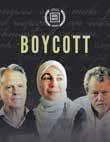

“Early in my career, I was always one of the few—or one of the only—women in my field,” said Orina Chang, now a top investment advisor with Morgan Stanley in New York. “In this industry, what matters is how you perform—and that’s objectively measured. Taking out the subjectivity benefits women. We build our own success. I want to spread that message to young women.”
Chang, who was born in Taiwan and moved to the United States at the age of 14, is passionate about encouraging women to pursue careers in finance. In addition to the work she does with institutional investors to customize their alternative investment portfolios, Chang is also a leader of “Lift, Women in Wealth,” an initiative run by Morgan Stanley to support and develop female financial advisors.
Chang credits her Columbia education with helping her identify—and ultimately achieve—her goals, and she gives back by serving on the GS Board of Visitors; she has also recently established the Orina Chang Scholarship Fund at Columbia University.
“I came out of GS with an unparalleled educational experience,” Chang said. “To explore and experience life on our own timetables, no matter how unconventional it seems to the outside world, that’s the spirit of GS. And I am excited about supporting others who have the same spirit.”
Alicia Graf Mack ’03, Dean and Director of Dance at The Juilliard School, recently launched Moving Moments, a podcast featuring her candid conversations with the world’s most accomplished and groundbreaking artists.
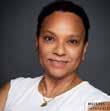
Isaac Zablocki ’03 was interviewed on the podcast How’d You Get That Job?, discussing his work as co-founder of the ReelAbilities Film Festival, the largest U.S. film festival dedicated to showcasing films by or about people with disabilities.

Eleena Melamed ’06 was recently interviewed for the School of American Ballet’s online “Alumni Spotlight” feature.

Christopher Riano ’07, President of the Center for Civic Education, announced the appointment of Dr. Donna Phillips ’95CC as the Center’s vice president and chief program officer. Riano wrote: “Columbia graduates … are taking up the senior executive mantle at this major organization to ensure a civic and constitutional education is available to all from cradle through career.”
Michelle Rejwan ’08 was the executive producer of the Lucasfilm TV series Willow, which premiered on Disney+ in 2022.

The Inspection, the newest film from writer and director Elegance Bratton ’14, is based on the true story of Bratton’s experience as a formerly homeless young man who joins the U.S. Marines. The film closed out the New York Film Festival to critical acclaim. Lead actor Jeremy Pope (who portrays Bratton in the film) was nominated for a Golden Globe for his performance.

Weronika Jurkiewicz ’15 organized free film screenings at refugee reception centers near the Polish-Ukrainian border for children and families displaced by war. Most films being screened were animated shorts or features for young children that were donated by producers and distributors who have waived associated distribution rights and fees. The films were part of the impromptu Border Crossing Children’s Film Festival.
Révolutionnaire, co-founded by Justice Betty ’18, partnered with essie, a leading nail polish company, for a limited-edition nail polish collection. Through the partnership, essie has curated a collection of shades that celebrate Révolutionnaire’s mission and commitment to inclusivity and diversity. Betty was interviewed on Canada ET to celebrate the launch.
Dual BA alumnus Mathieu Azar ’18 was profiled in Têtu magazine following his recent nomination as an LGBT+ Early Career Role Model by L’Autre Cercle, a French nonprofit promoting an inclusive workplace for LGBT+ professionals.

Blaine Morris ’19 graduated from the USC MFA program as a George Lucas scholar, serving as editor and producer on multiple TV and film projects.
Katie Daily ’03, ’05TC draws upon her GS experience in her leadership role at Purdue University Global
What led you to study at GS?
I started college in 1996 at Emerson College in Boston. As a performance and film production major, I spent the summer of 1998 in Los Angeles and decided to take a semester off from school. That semester blossomed into many years, and it was suddenly 2001 and I was an associate producer at an independent film company. I knew I had to either commit to a career in film or go back to school. A friend had told me about GS, so I set up a time to visit and instantly fell in love. I met Dean Awn on the way out of Lewisohn Hall after my interview and knew that GS would be my home.

What was most memorable about your Columbia experience?
Aside from Dean Awn? I found a passion for American literature combined with a true love for nontraditional learners. My community was one filled with dancers, former Marines, lifetime learners, and much more. It was robust, inspiring, and honestly a lot of fun. I didn’t know until I got to Columbia that education could be so enjoyable. I liked it so much I stuck around at Teacher’s College (TC) for an MA.
What do you think makes GS such a unique school?
GS is a home for those who do not fit a traditional mold. Not everyone is ready for college at age 18, not everyone is ready to go straight through to age 22, and not everyone fits a “traditional”
educational path. GS provides an elite education to individuals who already have the value of life and professional experience and who bring a wealth of perspective to everyone around them.
Can you share some of your career highlights?



I am the department chair of Professional Studies for Purdue University Global. This is an incredible job because Purdue Global is the school within the Purdue University system that caters to nontraditional students—I am back with my people! I began my postdoctoral career at the United States Military Academy at West Point, where I was an assistant professor of English and became the associate dean of policy and communications. After West Point, I became an assistant dean of students and resident dean at Harvard University, where I also taught in the English Department. While that was gratifying, my desire to connect with military, working, older, and otherwise nontraditional students pulled me to Purdue.
What is most rewarding about the work you do?
The student population. We have an extremely high percentage of active-duty military students in Professional Studies, as well as many individuals who are pivoting in their careers. We work with adult students in all stages of their educational journey. I am also extremely fortunate to have an amazing faculty who teach me new things every day.
Eytan Penn, an alumnus of the Joint Program with List College of the Jewish Theological Seminary, was selected by the U.S. Department of State to participate in the highly selective English Language Fellow Program in Vietnam. One of only 200 individuals selected, Penn is spending 10 months teaching English at the Hanoi University of Science and Technology as well as working alongside other educators and students to improve English language instruction and engagement abroad.
Previously, Penn completed a year teaching in Israel as part of TALMA, the Israel Program for Excellence in English, and spent two years working with Teach for America in Oklahoma.

“While in Vietnam, I have set many goals for myself. First and foremost, I hope to make a meaningful contribution to the English language department at my university, positively impacting the lives of the students and faculty,” he said. “I strongly believe that every student deserves a quality education, that mastery of the English language is important in today’s world, and that intercultural exchange is a mutually enriching experience.”
Betsy Bush ’20 hosts a podcast, The Latest Version, that highlights stories of change, growth, and reinvention.
Hayat Aljowaily ’20, a graduate of the Dual BA Program Between Columbia University and Sciences Po, was highlighted in Women of Egypt magazine for her work as a filmmaker and for her belief in the importance of championing diversity in film, both in front of and behind the camera.

Jose Esquer ’21 was awarded a Fulbright scholarship.
Pritika Swarup ’21 is the founder of Prakti Beauty, a line of modern beauty products inspired by traditional Indian and Ayurvedic practices. “I felt compelled to create a brand that is inclusive and offers a true representation of global beauty,” Swarup said in an article on camillestyles.com.
Laurie Marsden ’98, ’99SW knew early on that she wanted to help other women, especially those who struggled with issues of self-worth. A top model in the 1980s and ‘90s, Marsden traveled the world and graced the covers of magazines such as Harper’s Bazaar, Town and Country, and Vogue. But the glamour came with a price: Marsden‚ along with a number of other young models, was a victim of assault at the hands of Gérald Marie, the former head of Paris-based Elite Model Management. The experience steeled her resolve to become an advocate for women, and she left the fashion industry to study at GS.
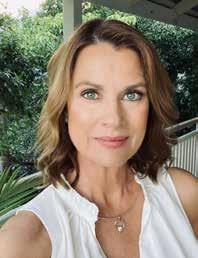
“I had an interest in working with women going back to my days as a model,” Marsden said. “Modeling creates all these images that negatively affect women’s self-esteem. I found that women, no matter how sick they are, tend to have trouble with the same underlying problems. And that is what you work on in therapy; you treat what is underneath.” After graduating from GS, she earned her MSW at the Columbia University School of Social Work and established a private practice as a psychotherapist in New York. She saw the need for a “program to help women improve their mood, increase their self-esteem, and build healthy relationships,” she said, and created 8 Steps to Becoming You, an online therapy program for women. In recent years, she has been at the center of a high-profile complaint against Marie, and, in an effort to raise awareness of sexual abuse and ultimately change laws to better protect women, she spoke before the French Senate in 2021 and the European Union Parliament in 2022. To help others who were victimized by predators like Marie, she founded a survivors group called Victorious Angels.
Today, Marsden lives in Brisbane, Australia, with her husband and children. She credits her Columbia education with giving her the skills she needs to help other survivors and expresses her gratitude to the School by being a generous donor and serving as the GS chair for the 1754 Society Participation Drive.
“The thread throughout my life has been the desire to help people, especially to help women deal with trauma and live healthier lives,” Marsden said. “Columbia enabled me to be able to do this professionally. I feel so blessed to have had a Columbia education and to now be able to give back.”
Tamzon Krumholz Fagan ’49 (1924-2023) lived most of her life in Wyckoff, N.J., and was a homemaker, bridge player, and volunteer at Valley Hospital’s Kurth Cottage. She obtained a master’s degree in psychology from Fairleigh Dickinson University in Teaneck.
Frank Charles Infanger ’50 (1927-2021) of Sarasota, Fla., received military funeral honors at the Sarasota National Cemetery on February 26, 2021.
Born in Cuba, Aston Glaves ’60 (19272019) grew up in Jamaica. After graduating from Columbia he had a successful career as a housing developer in New York City, where he coordinated affordable housing for senior citizens and served as the chairman of the New York City Rent Guidelines Board. Glaves House, a building in Midtown Manhattan, is named after him.
Phyllis Leonard Townley ’67, P’84 (19322022) lived a life dedicated to service and
social activism. Among her many activities, she was a lay chaplain with the Chaplaincy Program at Bellevue Hospital and active with the New York Hospital Visiting Committee. She was an engaged member of the congregation at the Church of the Ascension and a volunteer at the church’s homeless shelters.
Emeritus professor of anthropology and Bronze Age archaeologist Philip L. Kohl ’69 (1946-2022) majored in classics at Columbia, from which he graduated Phi Beta Kappa. He earned his PhD in 1974 and then spent 42 years teaching in the Anthropology Department at Wellesley College. He is the author of The Making of Bronze Age Eurasia
After studying economics at Columbia, Eric P. Richards ’67 (1944-2022) went on to serve as a Navy jet pilot. He then began a career in finance, holding leadership positions at Chase Manhattan and Bank of America, among others. A longtime sailor,
“Never let the child in you die,” Ashley Bryan ’50 (19232022) often said, and the artist’s exuberant body of work is proof that he maintained a rare sense of wonder throughout his 98 years, and leaves behind a rich legacy of illustrated children’s books that celebrate Black life and culture.

Bryan may be best known for his 2004 book Beautiful Blackbird, a vibrant retelling of an African folk tale. He also illustrated books of poems by Langston Hughes and Nikki Giovanni and, at the age of 96, he published a memoir titled Infinite Hope about his experience serving in a segregated Army in World War II. Following his wartime experience, he enrolled at the School of General Studies to study philosophy.
“I hope that through my work, children will see what is beautiful in them and explore art,” Bryan said in a 2021 interview in Columbia Magazine. “Making art is one of the most adventurous experiences you can have.”
he was a member of the New York Yacht Club for 29 years.
Jean Paglia ’88, ’95SW (1945-2021) of Lyndhurst, N.J. was an ordained minister, Christian counselor, and educator.
Marilyn Spiegel Sibery ’97 (1970-2021) pursued a career in addiction medicine, first at community clinics in Harlem and the Bronx, and later as director of behavioral health at a hospital in Westchester. In 2018, she opened her own practice, Westchester Addiction Medicine. While she was always interested in the latest medical advances and research, her true love was helping patients.
Before attending Columbia, Samuel Eliot Weber ’19 (1992-2022) spent four years in the U.S. Air Force as a C-17 loadmaster. After his enlistment and subsequent graduation from Columbia, he co-founded Top Tree Herbs, a kratom tea company.
Helena Bechtold ’51
Karl Ellefson ’52
Henry R. Bolin ’65
Elizabeth Waite ’73
June Middleton ’81
David M. Rea ’81
George M. von Fur stenberg ’63
A writer, poet, and editor, Charlotte Mayerson (1927–2022) grew up in New York City and was educated in its public schools. In addition to her writing career, Mayerson was research director of Book-of-the-Month Club; senior editor at Holt, Rinehart and Winston; and an editor at Random House, where she eventually became executive editor. Her books include Shadow and Light, Two Blocks Apart, An Easy Life, Home Fires, Goin’ to the Chapel, and Will I Remember You? She also completed a novel called Personal Property. In 1995, Mayerson wrote The Death Cycle Machine in response to the death of her son, Robert Henry Mayerson, who was a student at Columbia School of General Studies in 1990 and died of AIDS the same year.

In almost 20 years at Columbia Libraries, Freddy Claudio ’22 (1975-2022) was committed to education, art, and community. Responsible for binding materials for Columbia Libraries and the preparation of books and serials prior to shelving, Claudio was also a gifted writer and visual artist.

He was passionate about his work with the Inclusion, Diversity, and Equity Committee at the Libraries and was active in the Columbia First-Generation, Low-Income (FLI) Partnership Library. He spent many years working toward his Bachelor of Arts degree in philosophy at the School of General Studies, which he completed in May of last year. It was a proud moment for Claudio and everyone who knew and loved him.
He passed away at the age of 47 on July 15, 2022 from pancreatic cancer. On August 25, colleagues, friends, and loved ones gathered in Butler Library to celebrate his life.

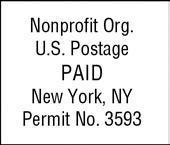
Last year’s Reunion Weekend was an especially memorable occasion in many ways. Over the weekend of June 9-11, 2022, alumni and guests gathered in person for the first time in three years to connect with old friends and make new ones. One of the weekend’s highlights was the spectacular annual Reunion Dinner held in Roone Arledge Auditorium in Lerner Hall. Dean Lisa Rosen-Metsch ’90, below center, welcomed approximately 250 convivial attendees to the festivities, which included the presentation of the 2022 Owl Award to Kirsty Jardine ’15, ’16PH. The Owl Award is given out annually to a GS graduate, Columbia faculty member, or benefactor in recognition of their exemplary service to the School of General Studies.
 The Alumni mAgAzine of ColumbiA universiTy sChool of generAl sTudies
The Alumni mAgAzine of ColumbiA universiTy sChool of generAl sTudies